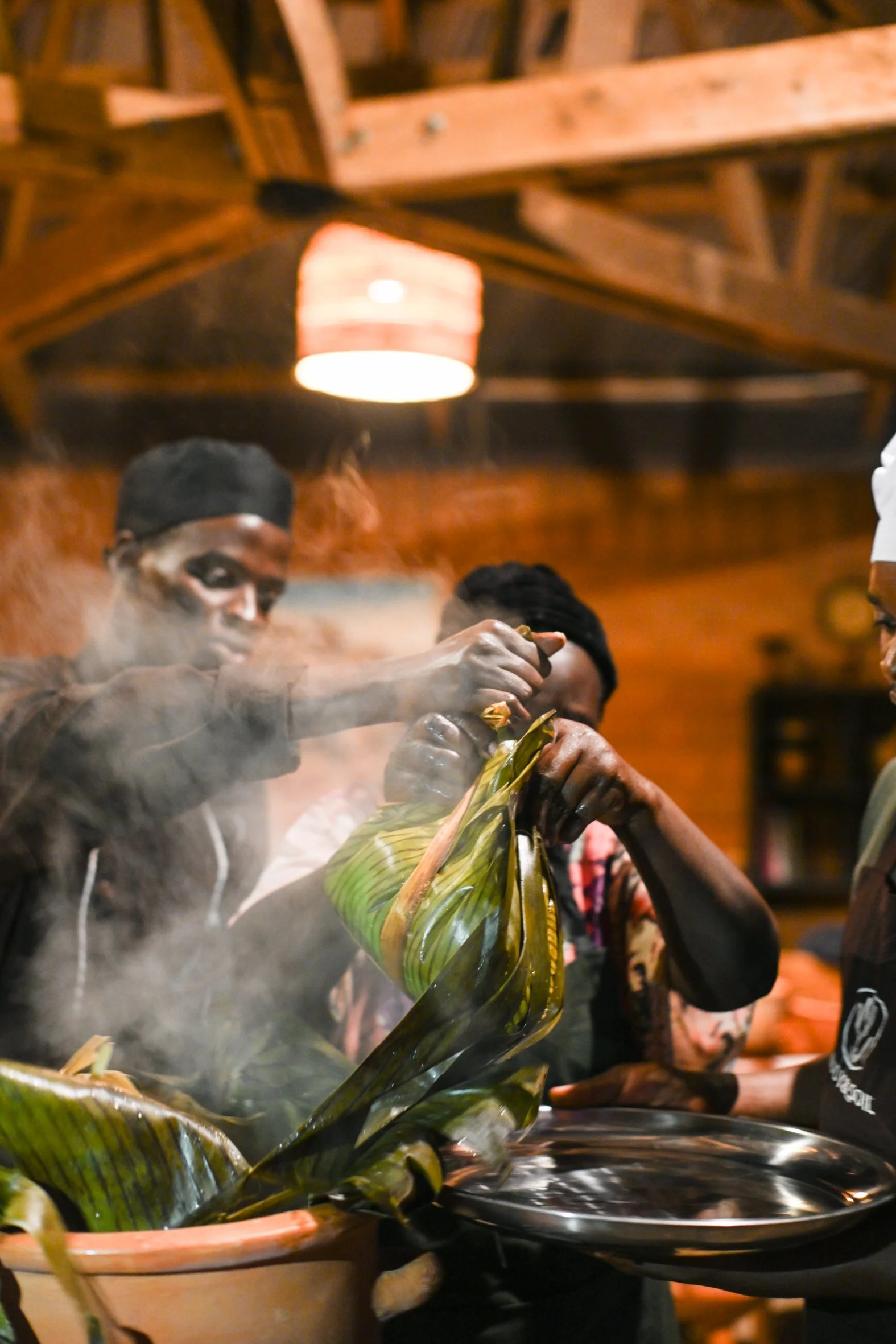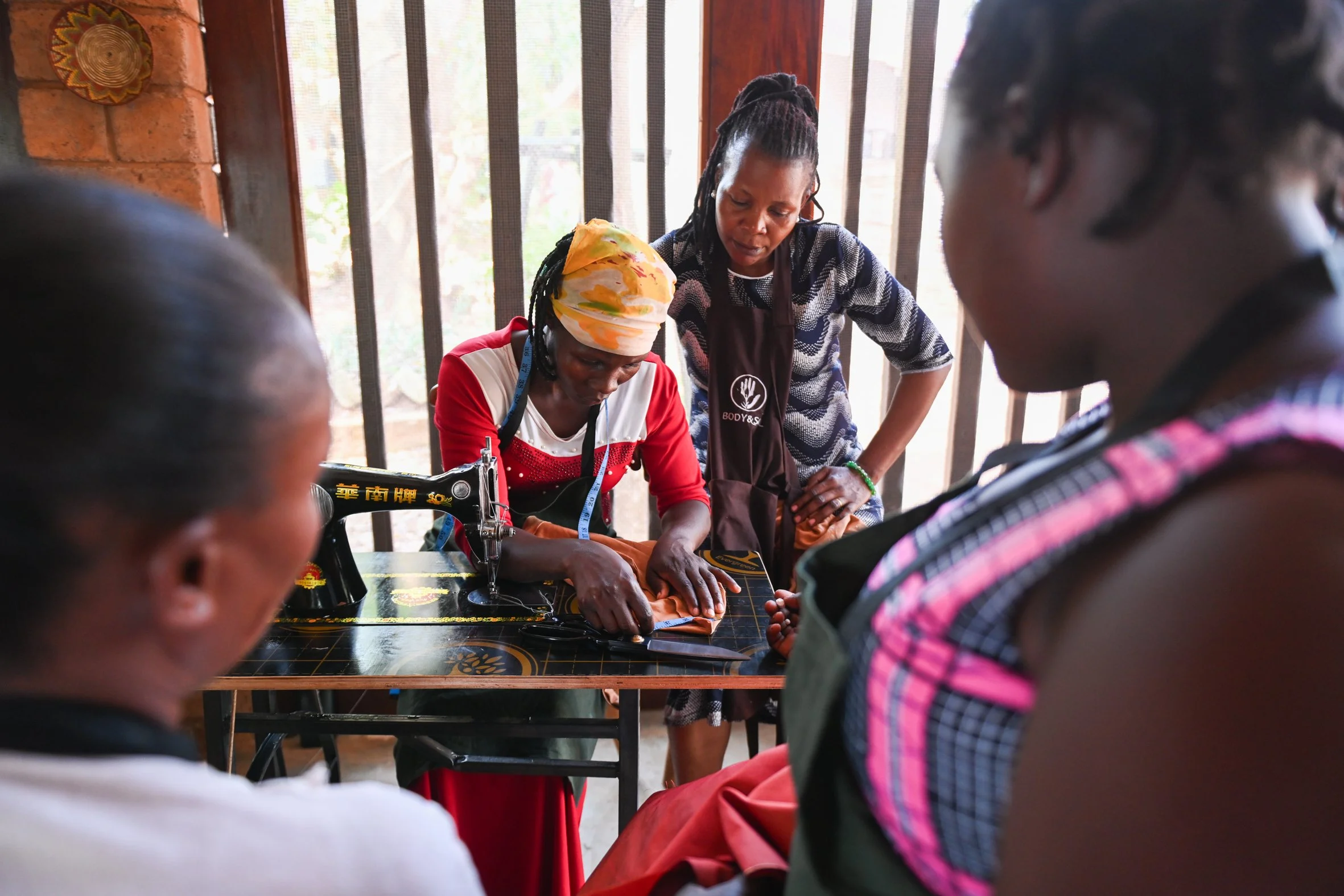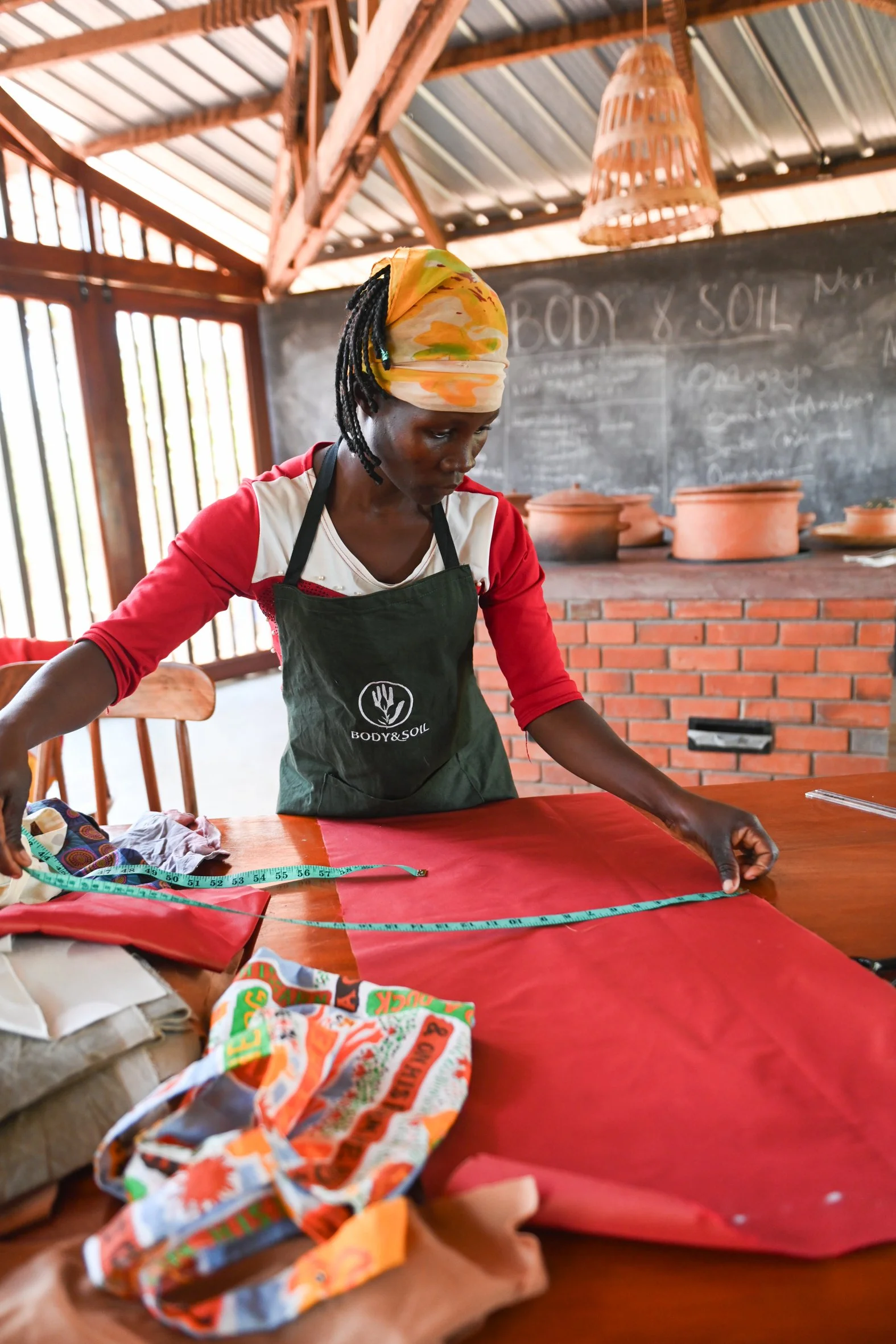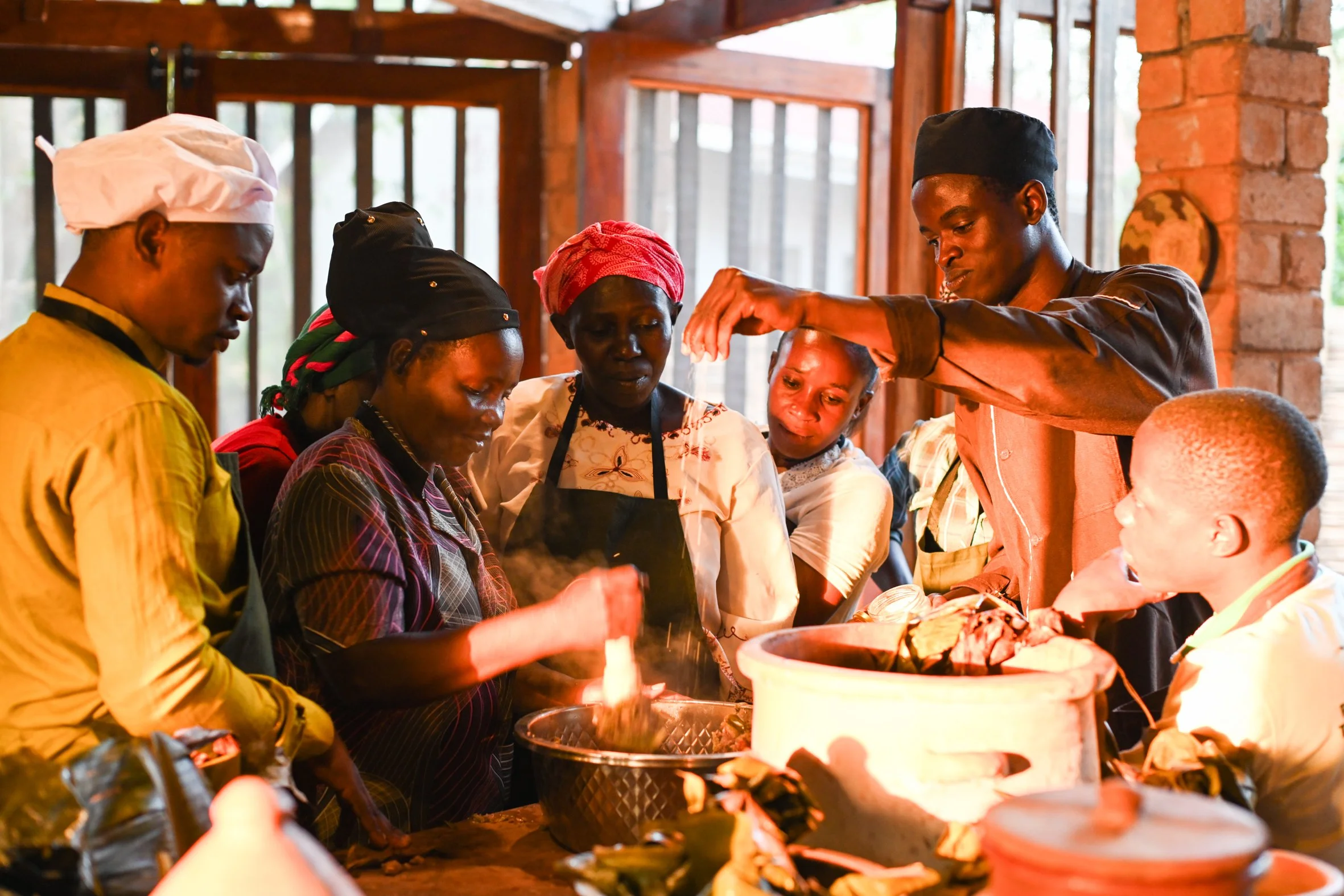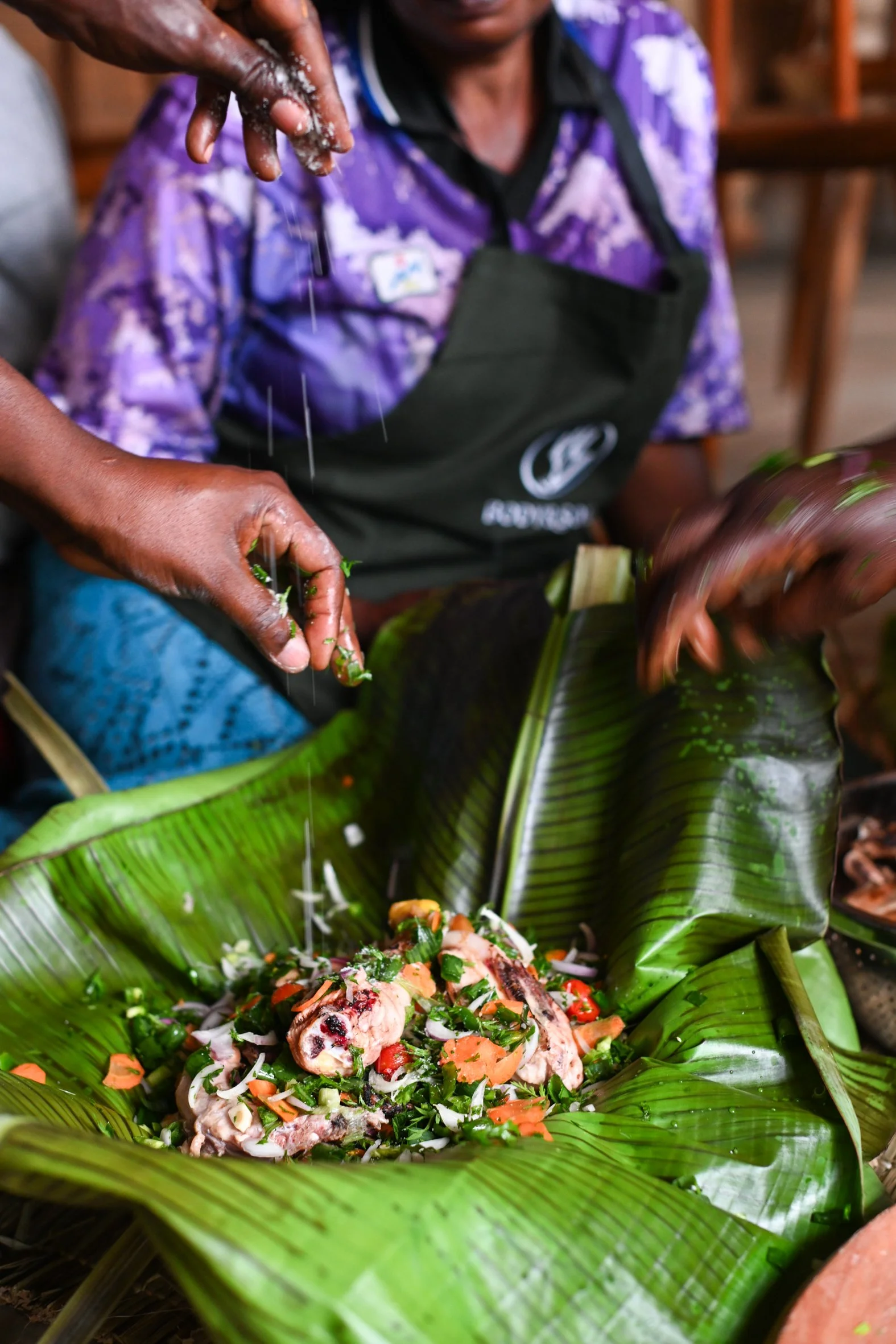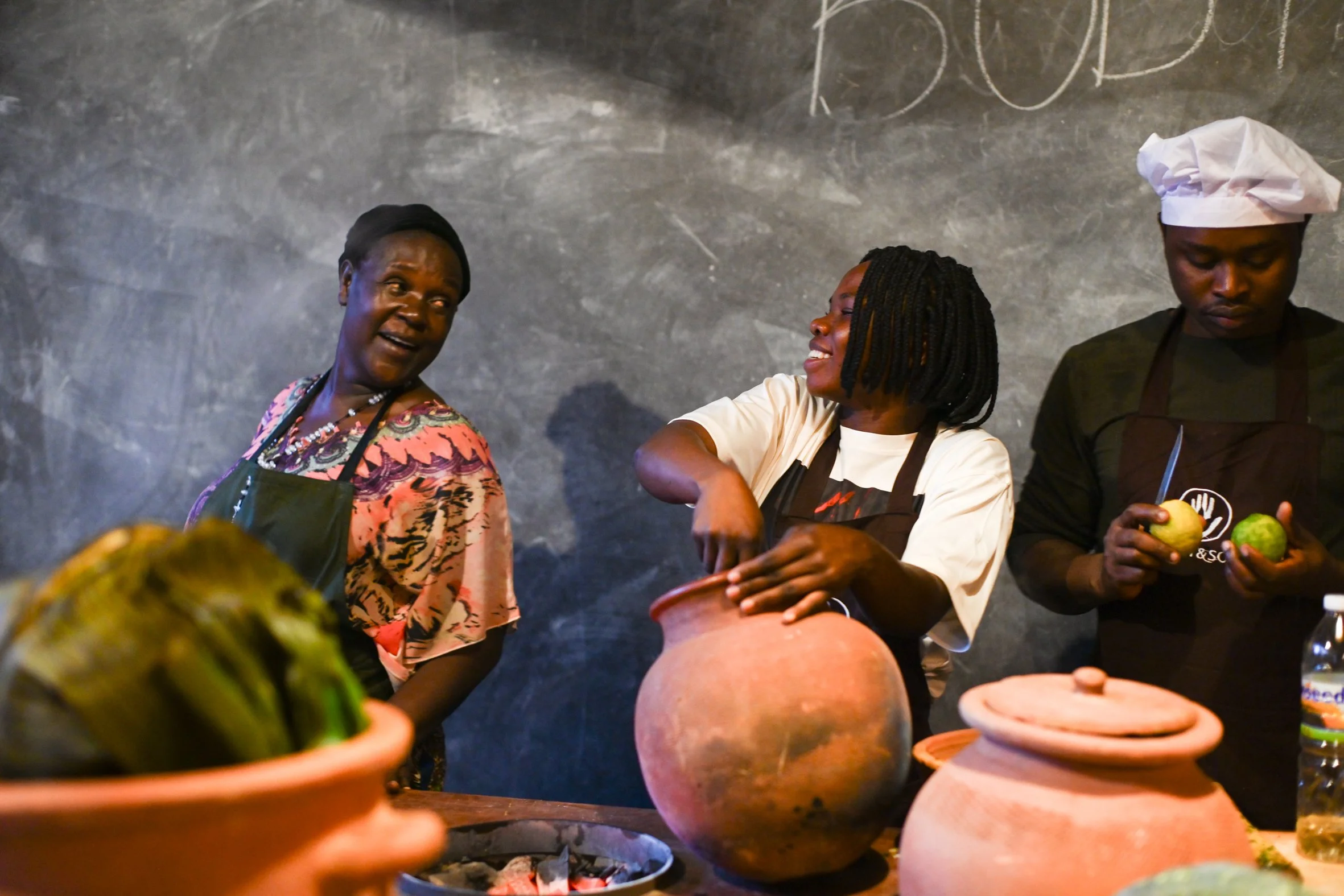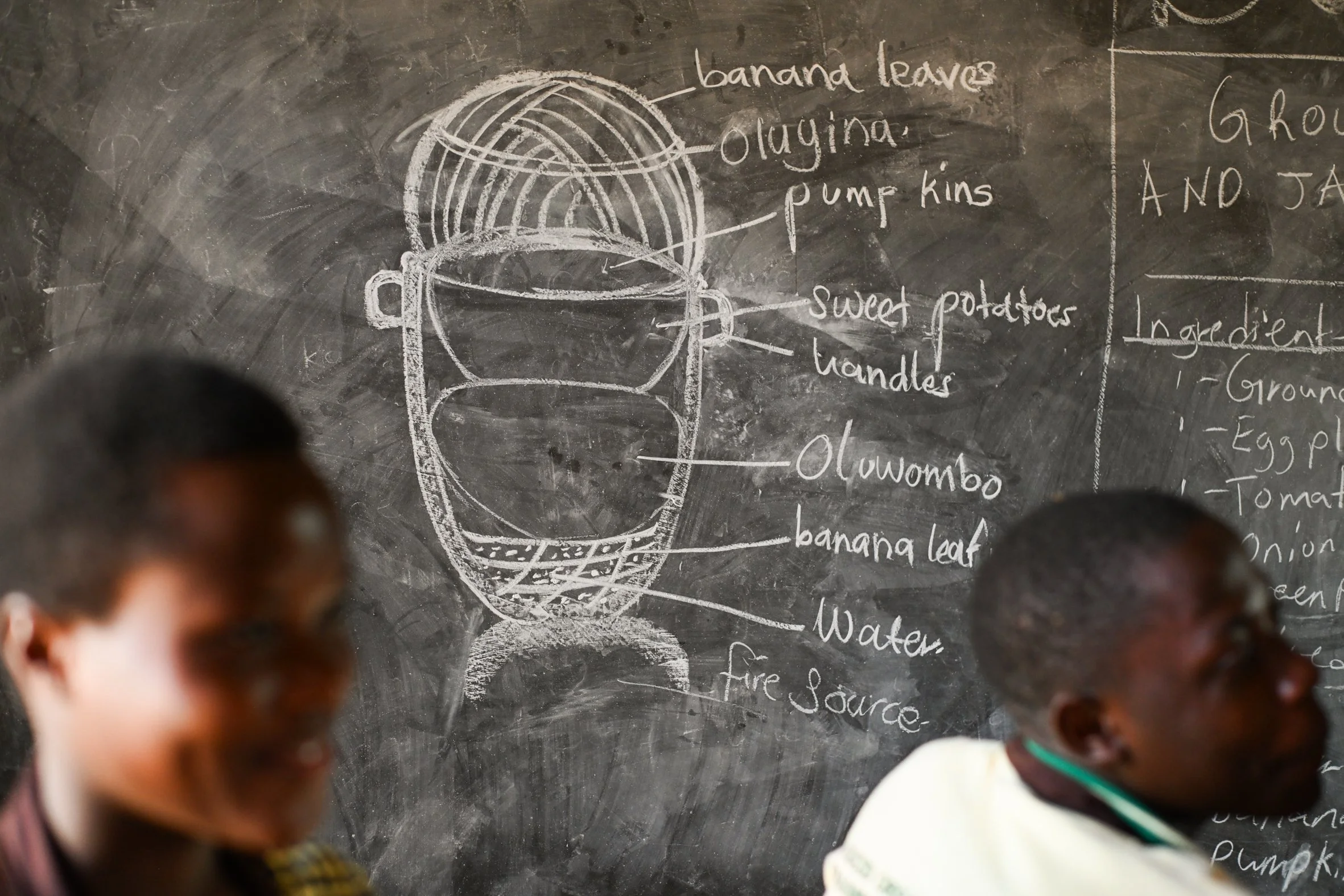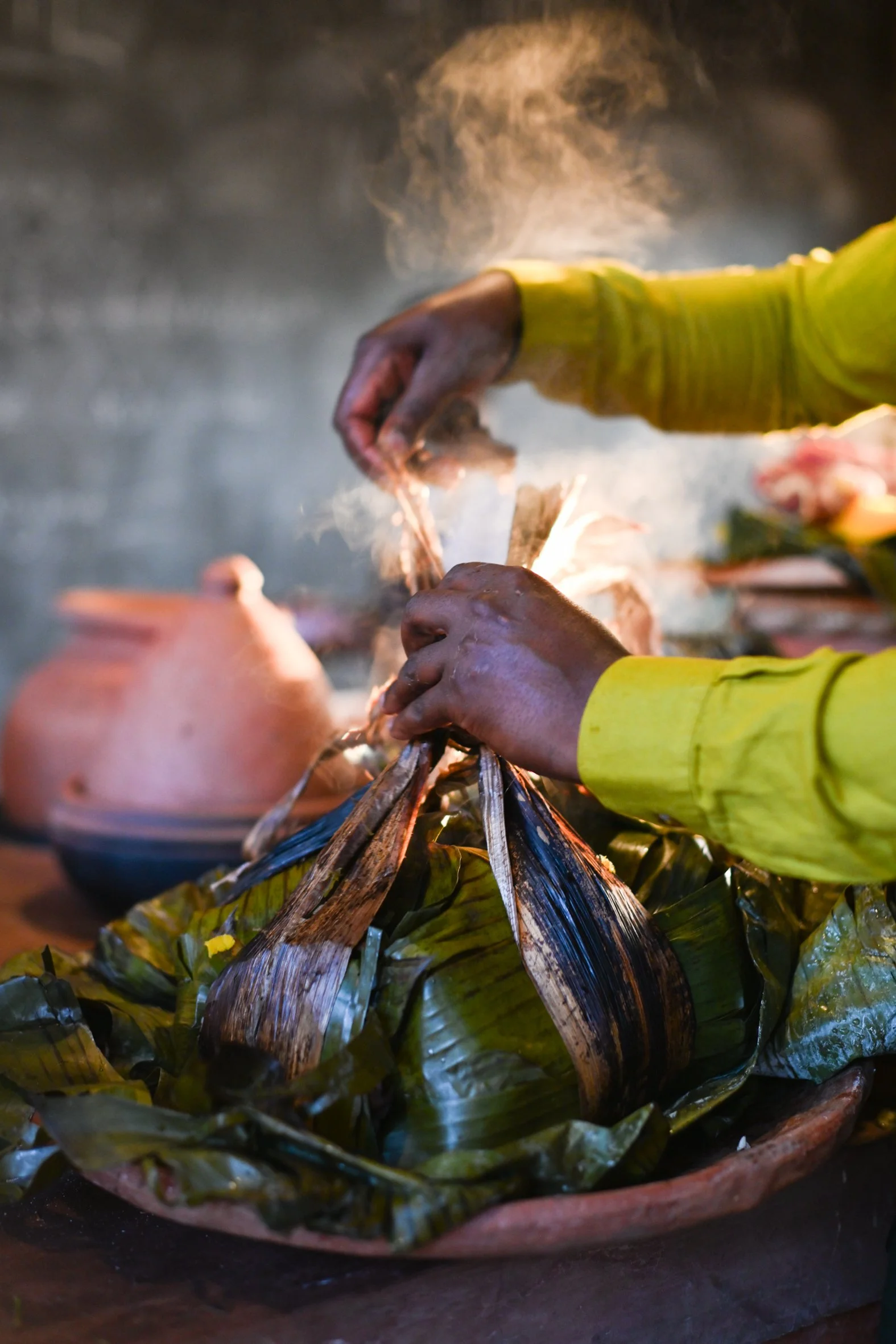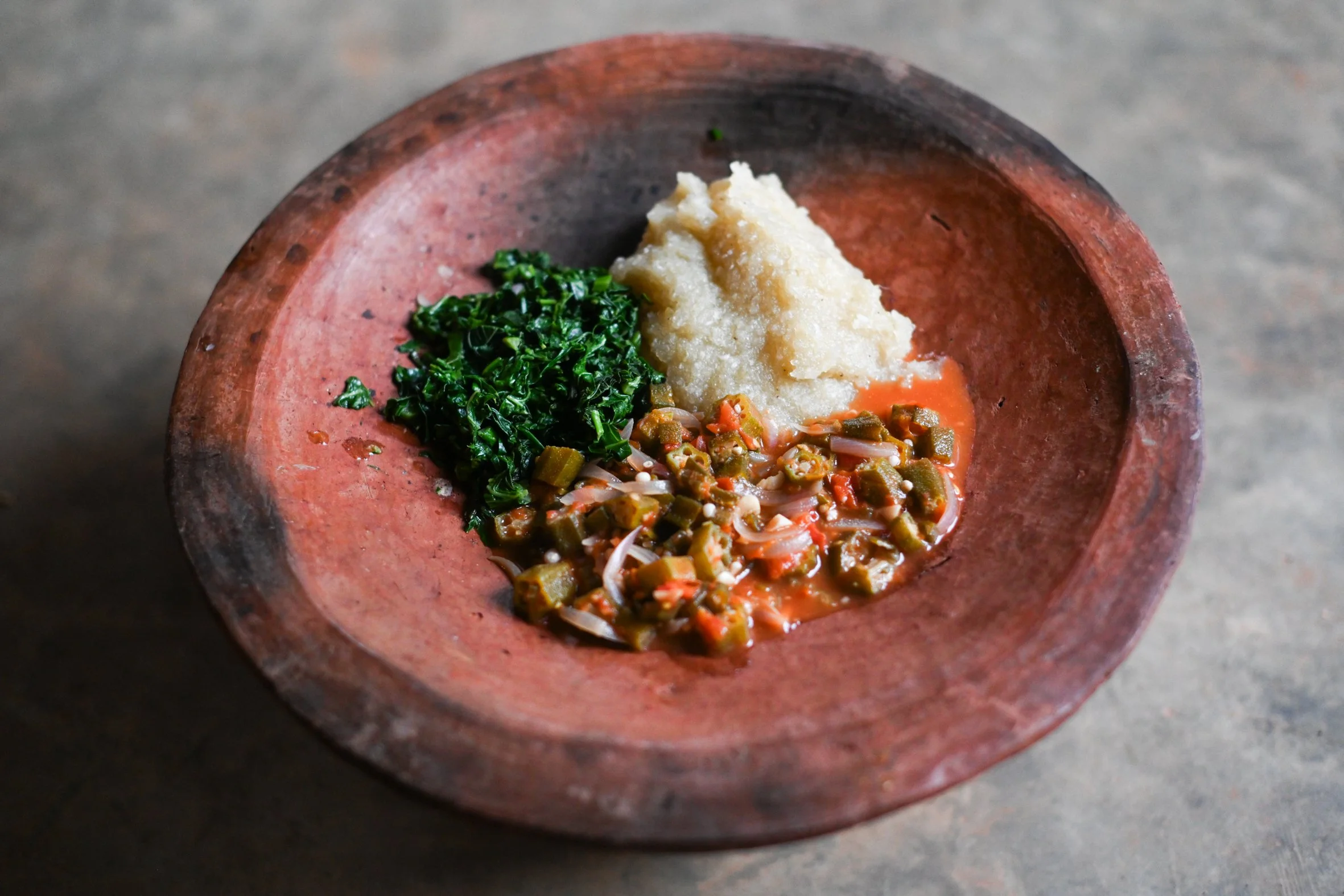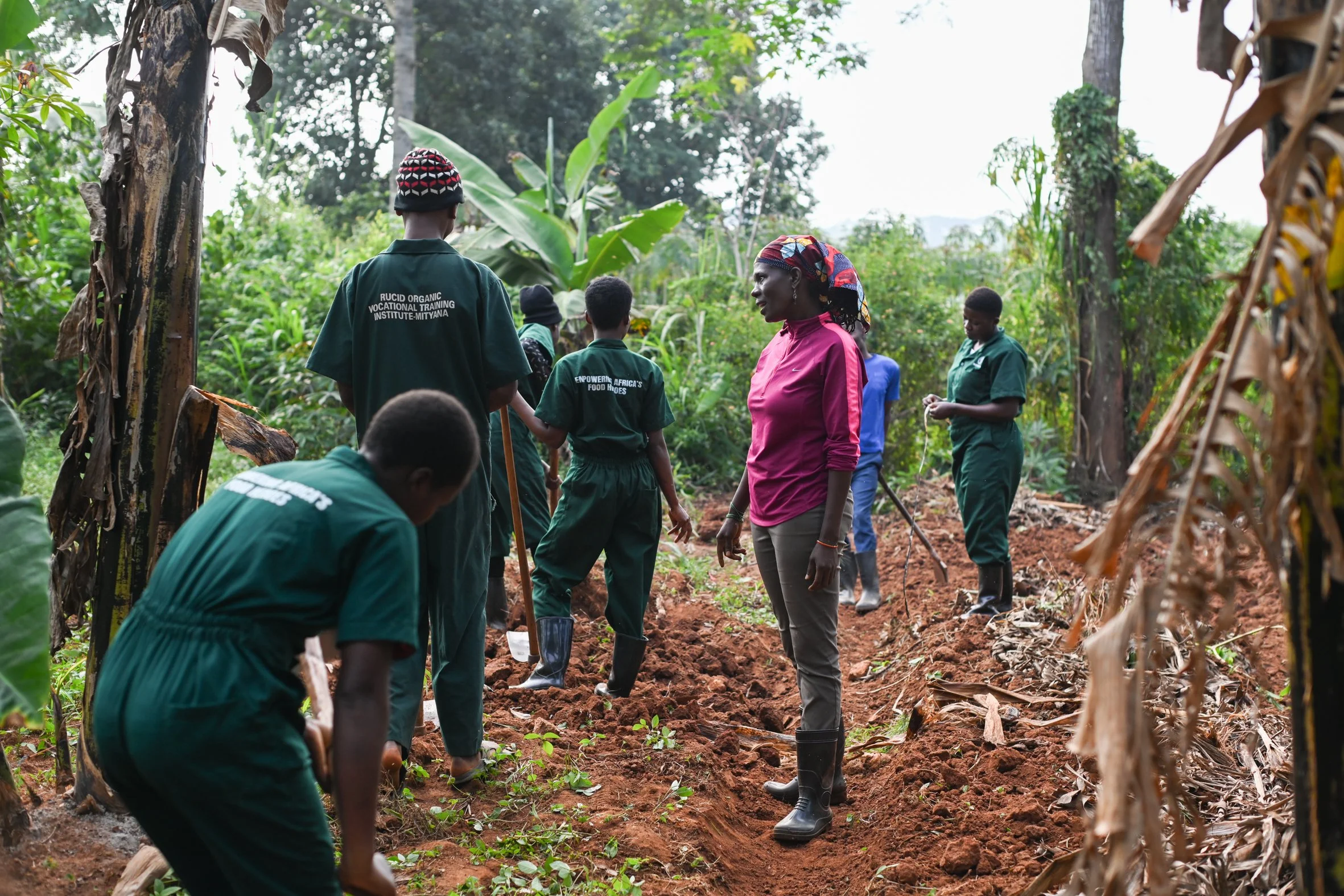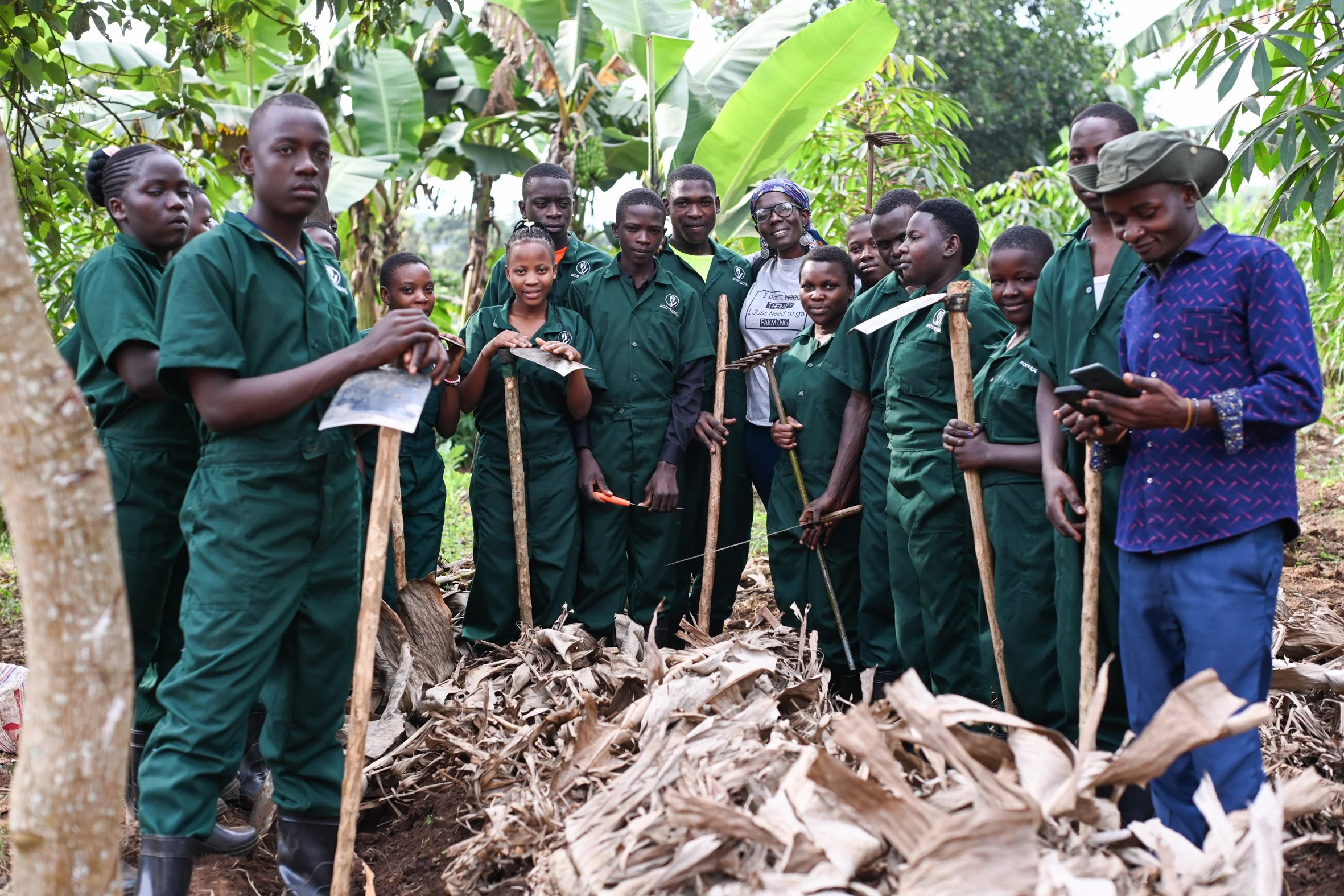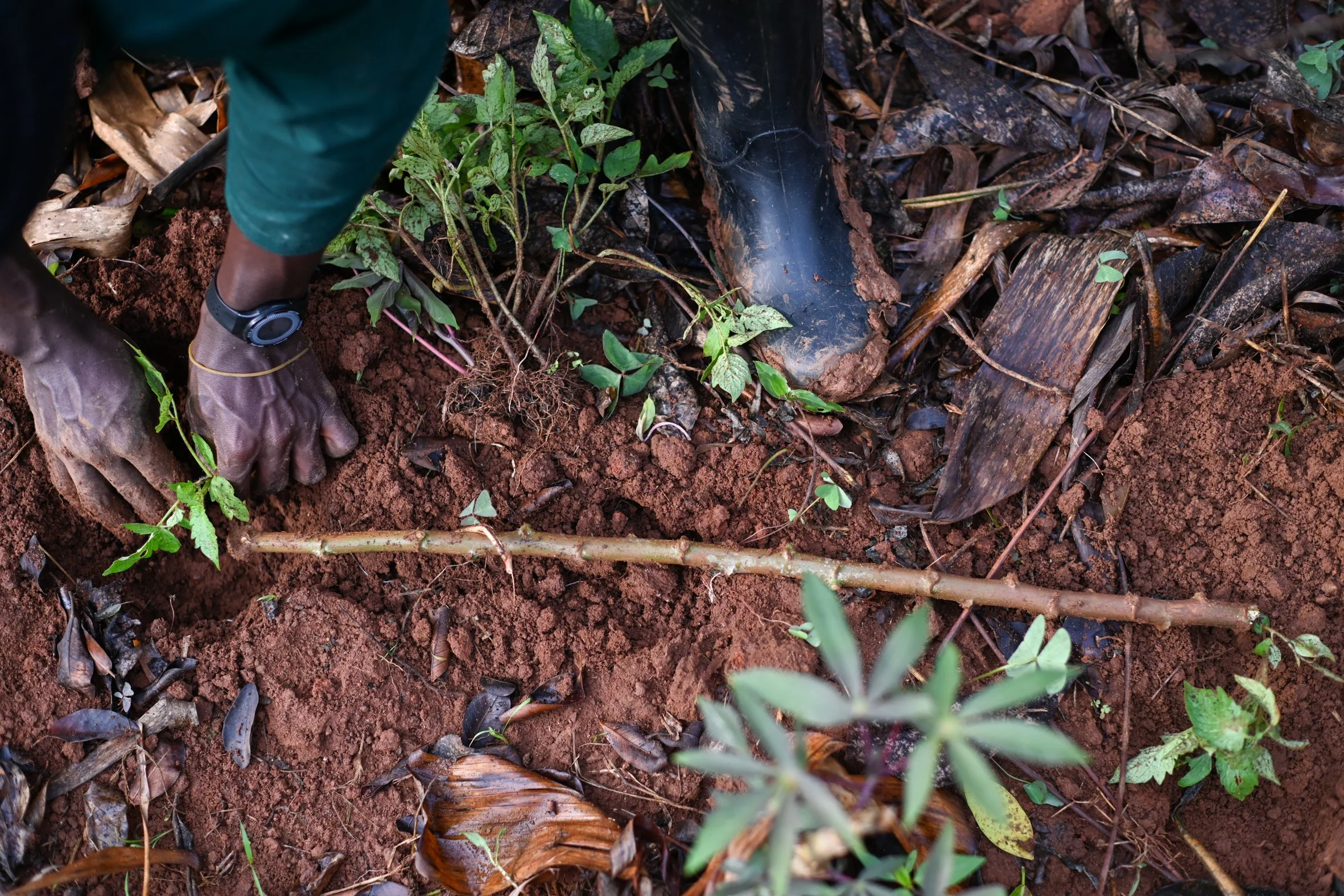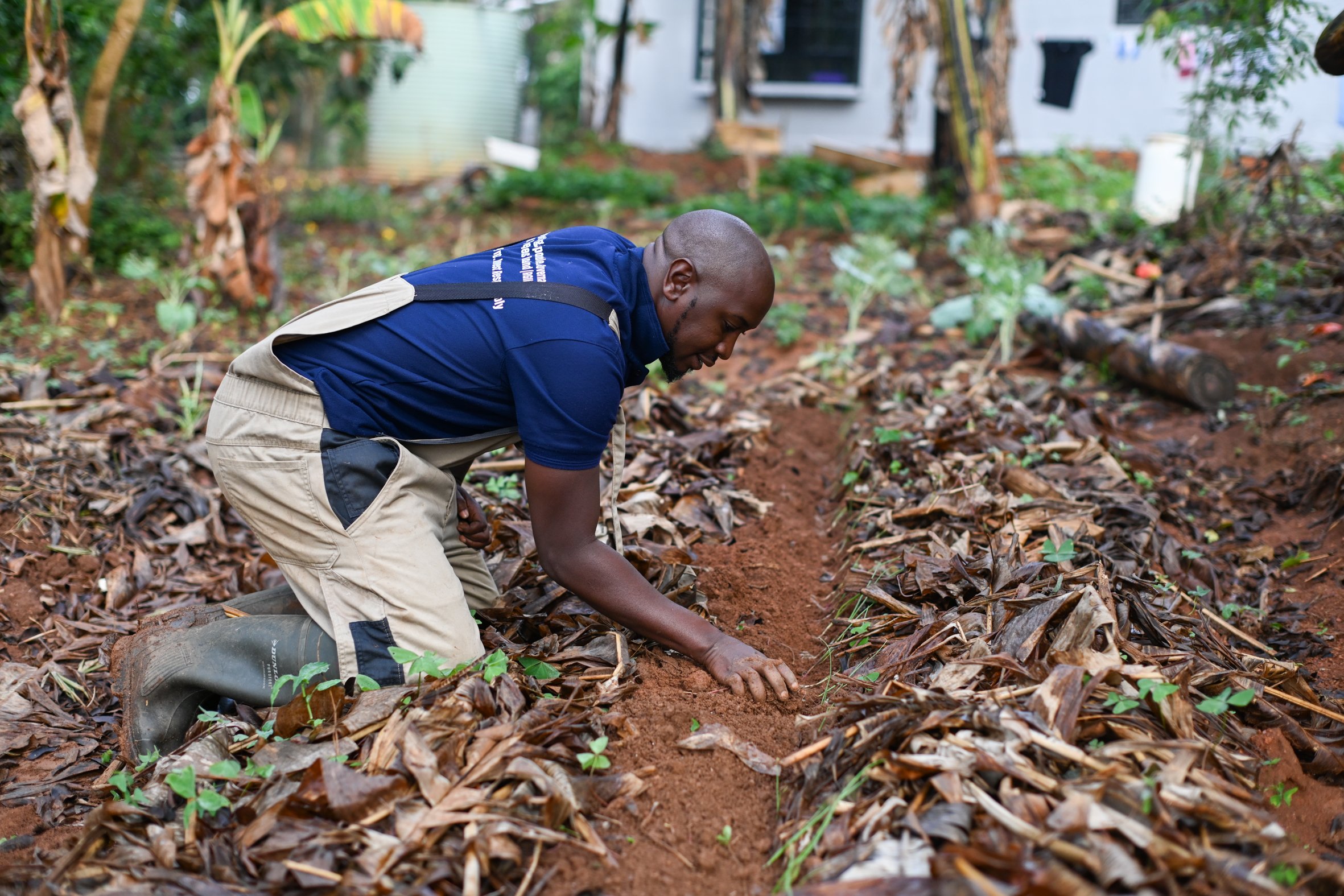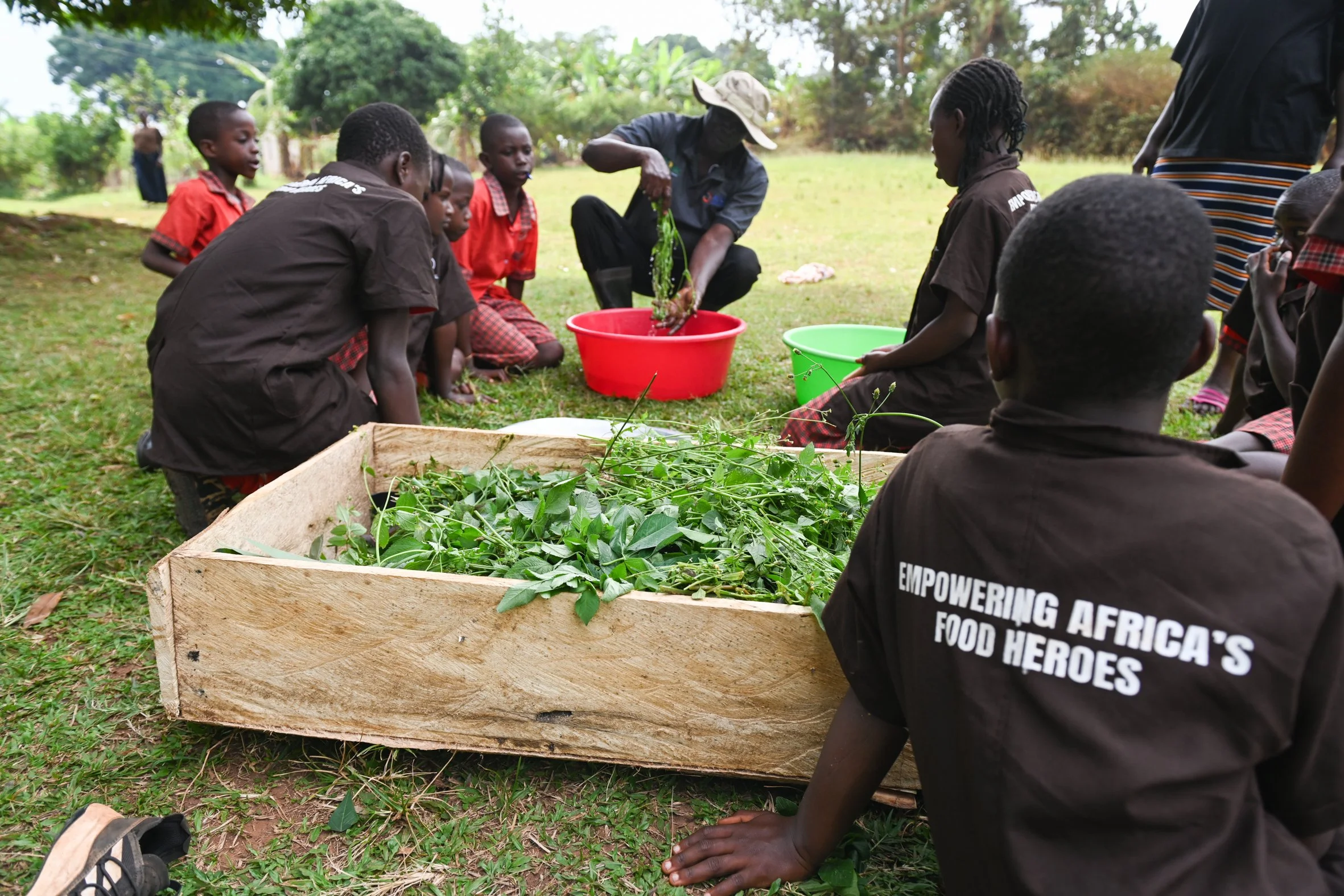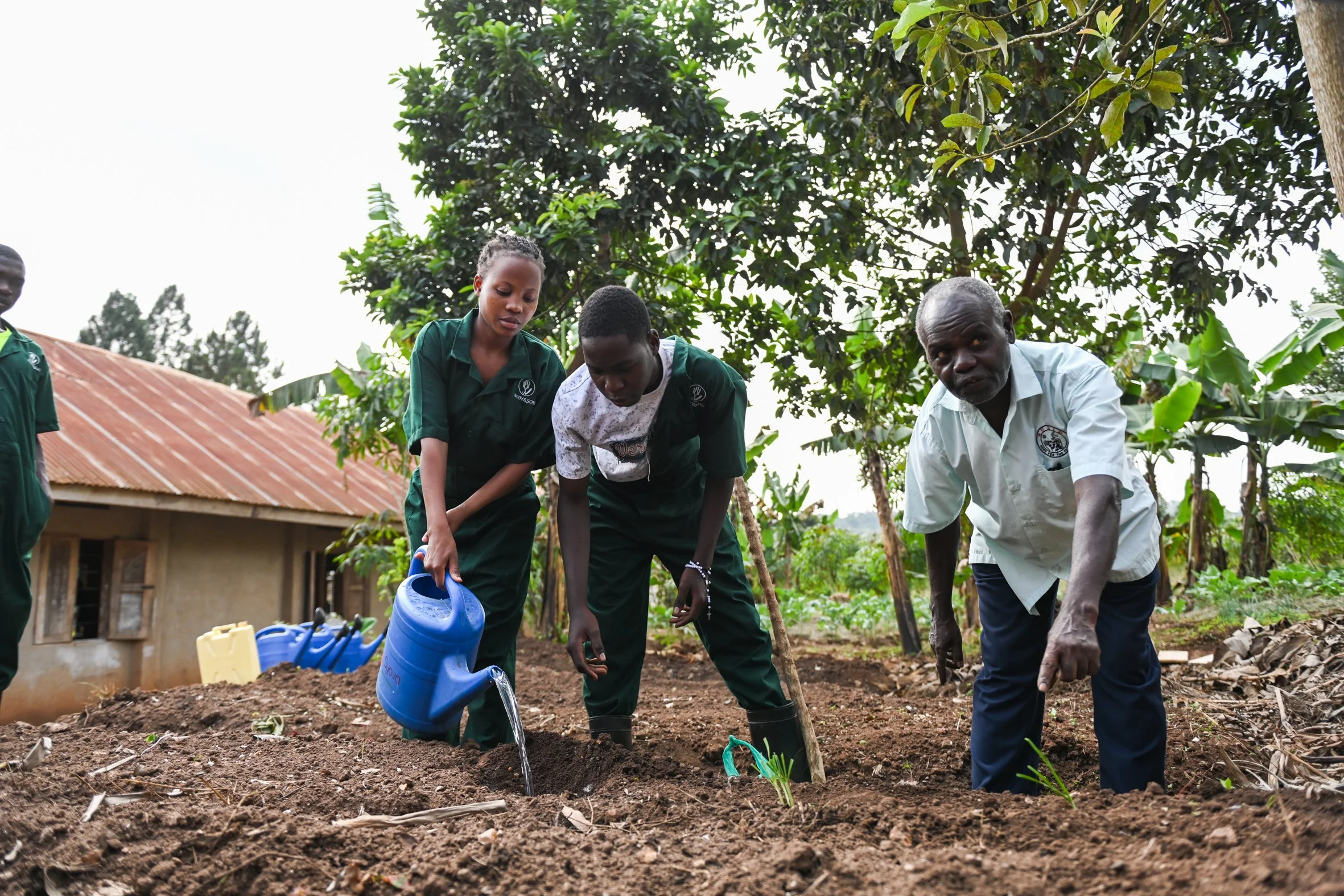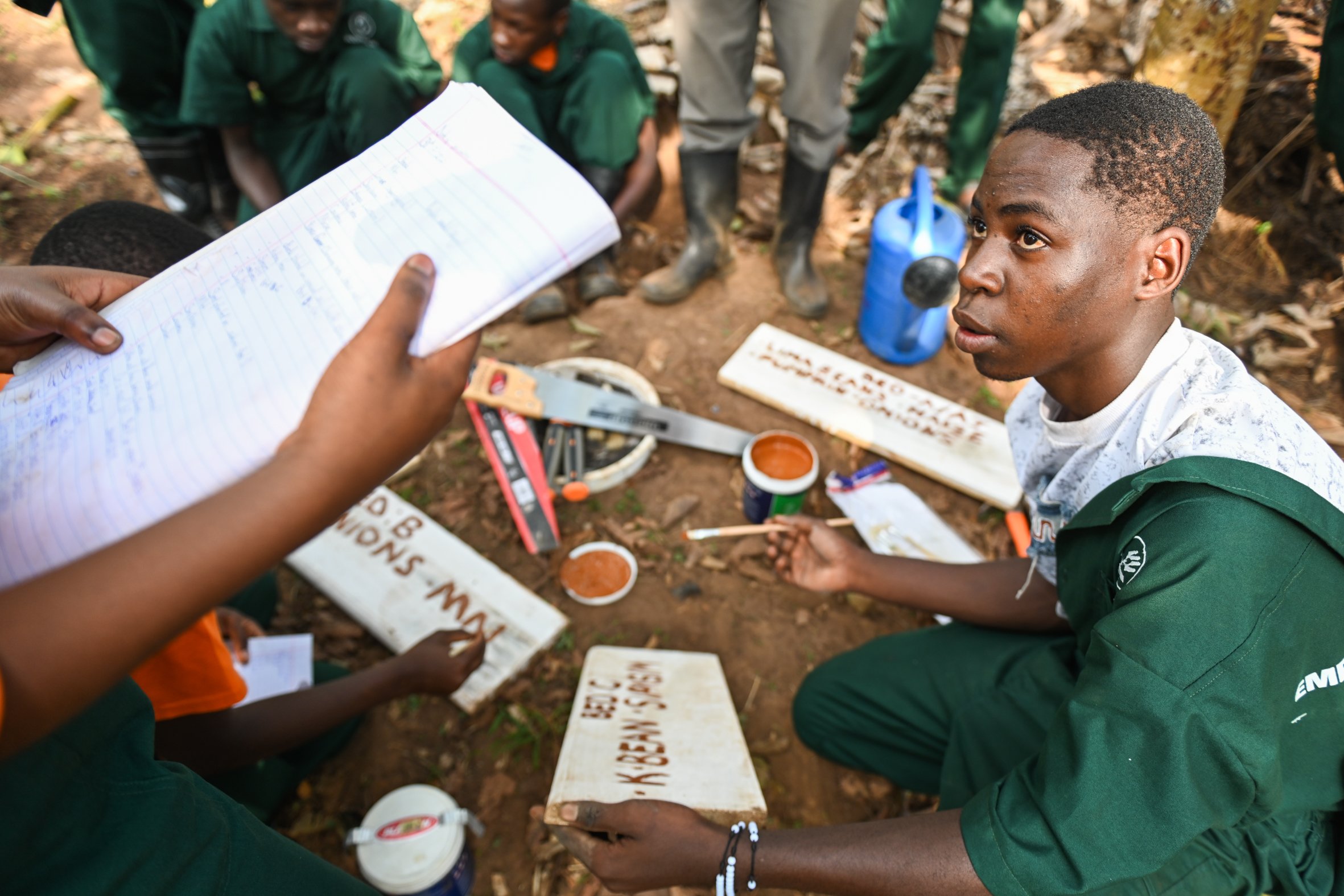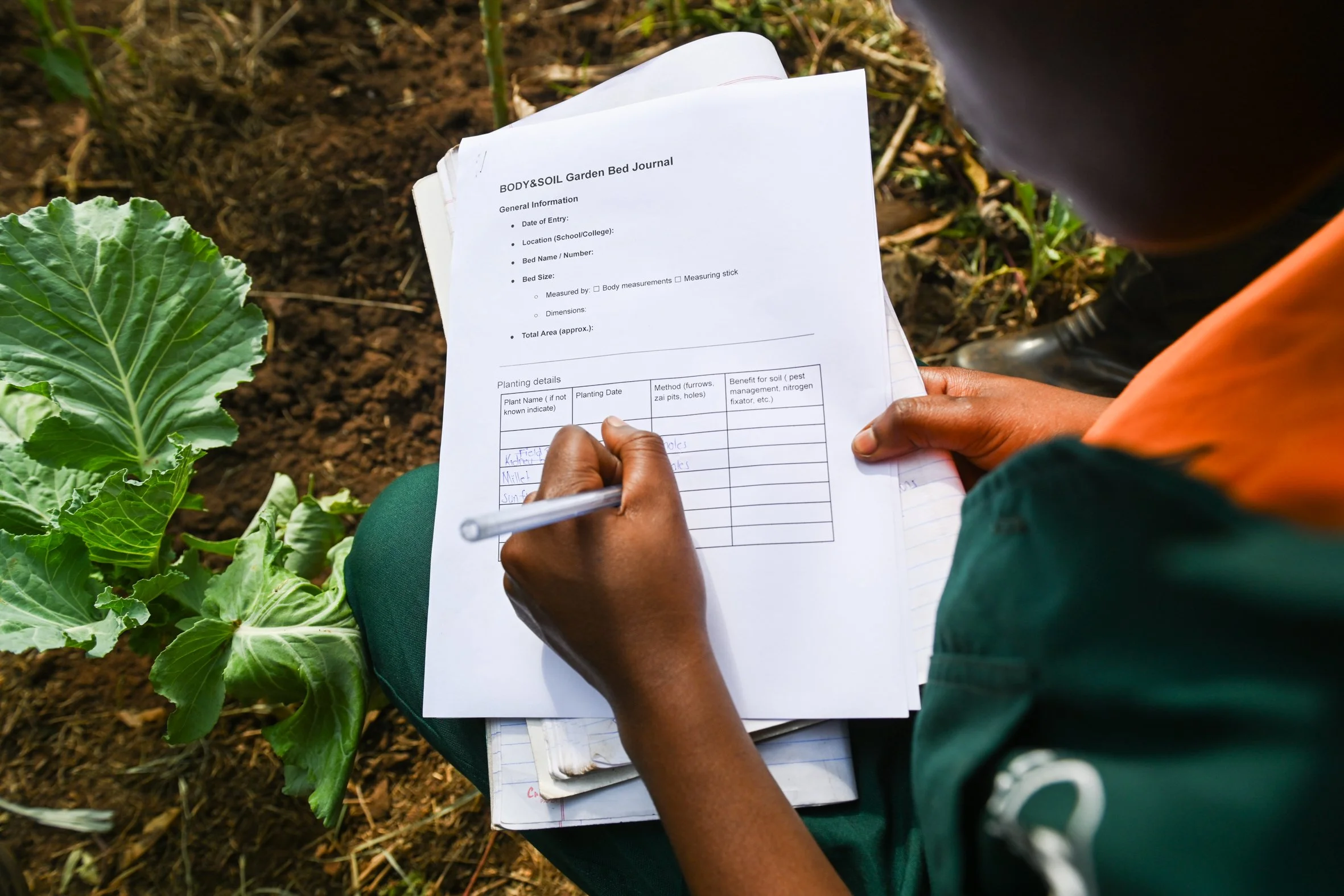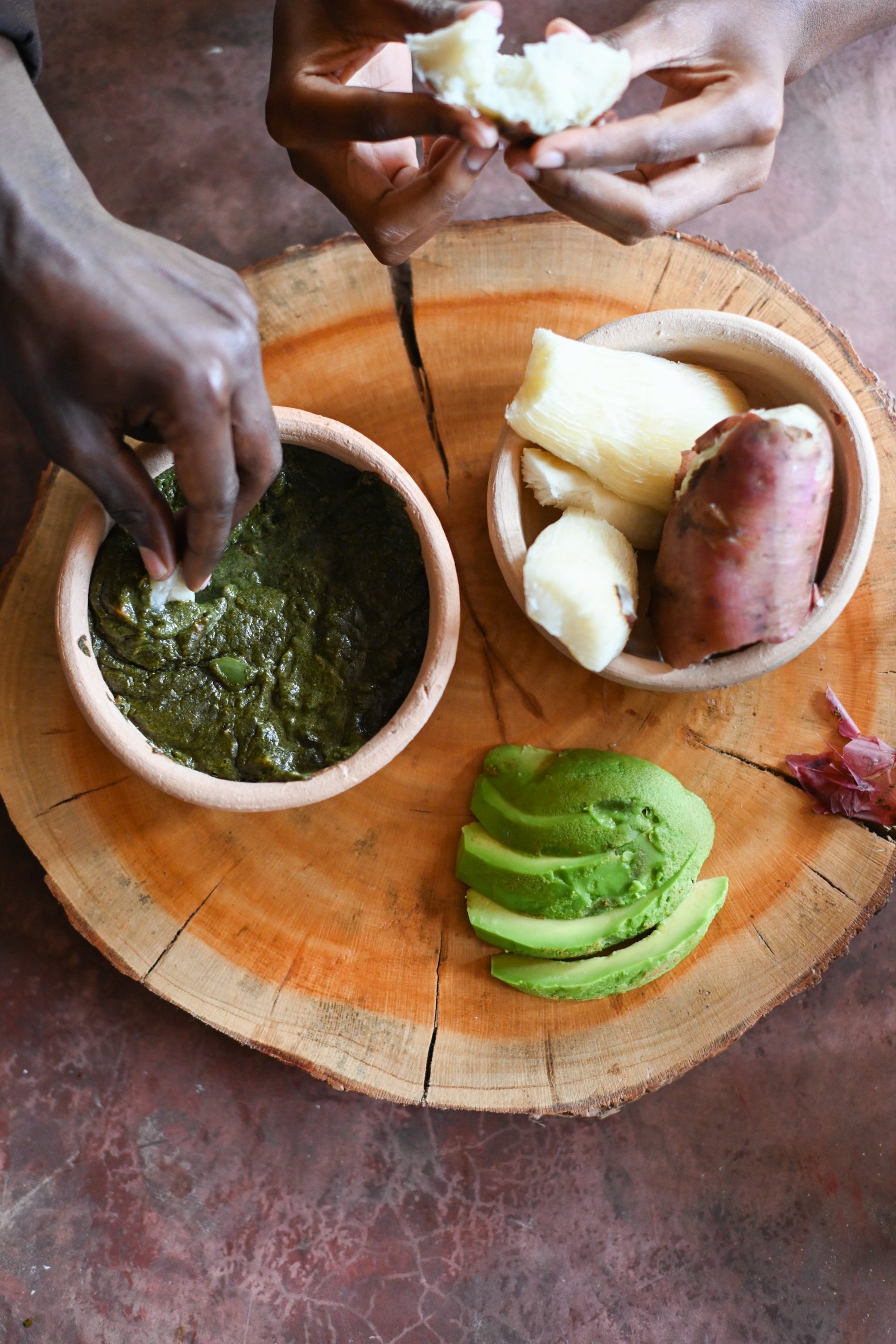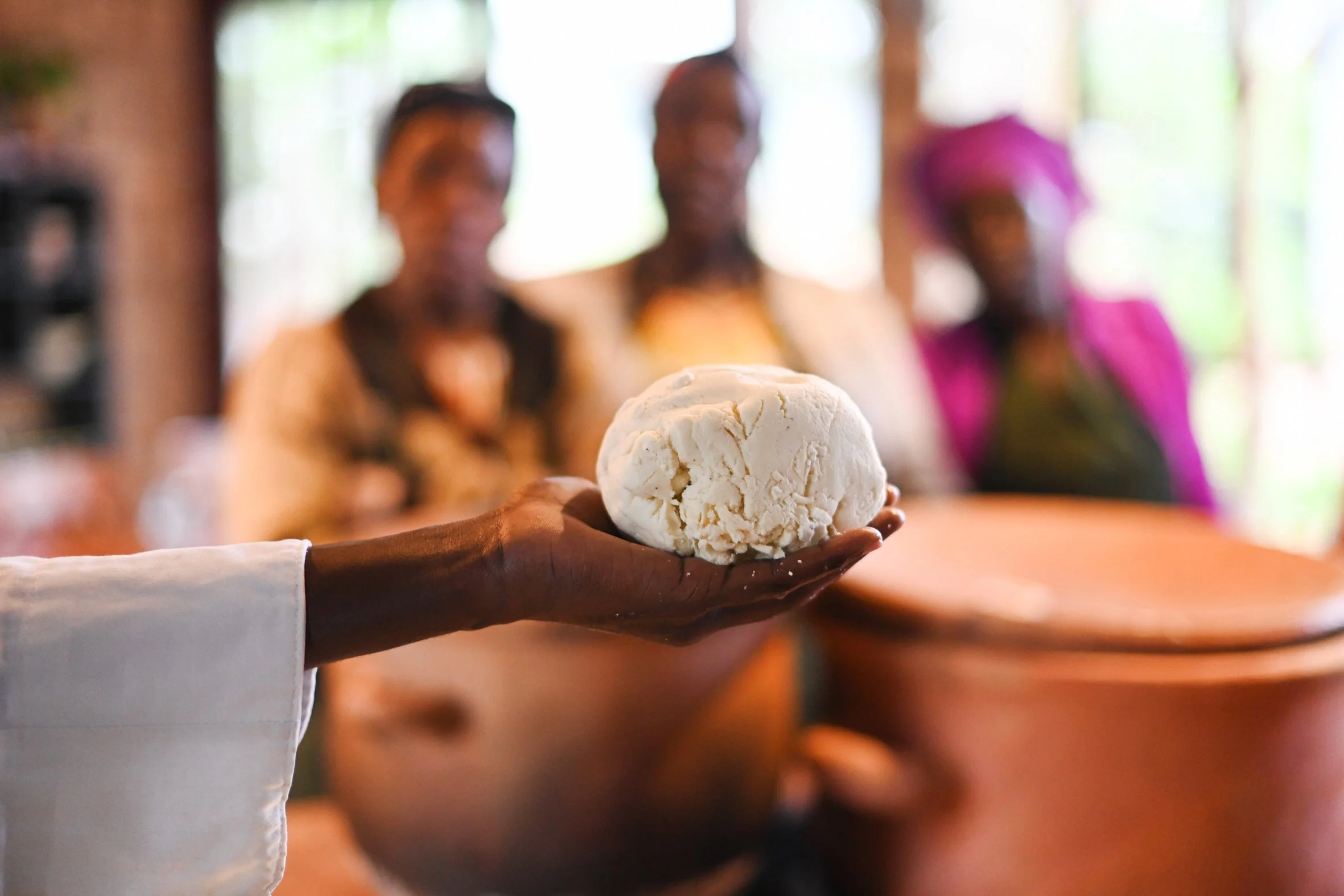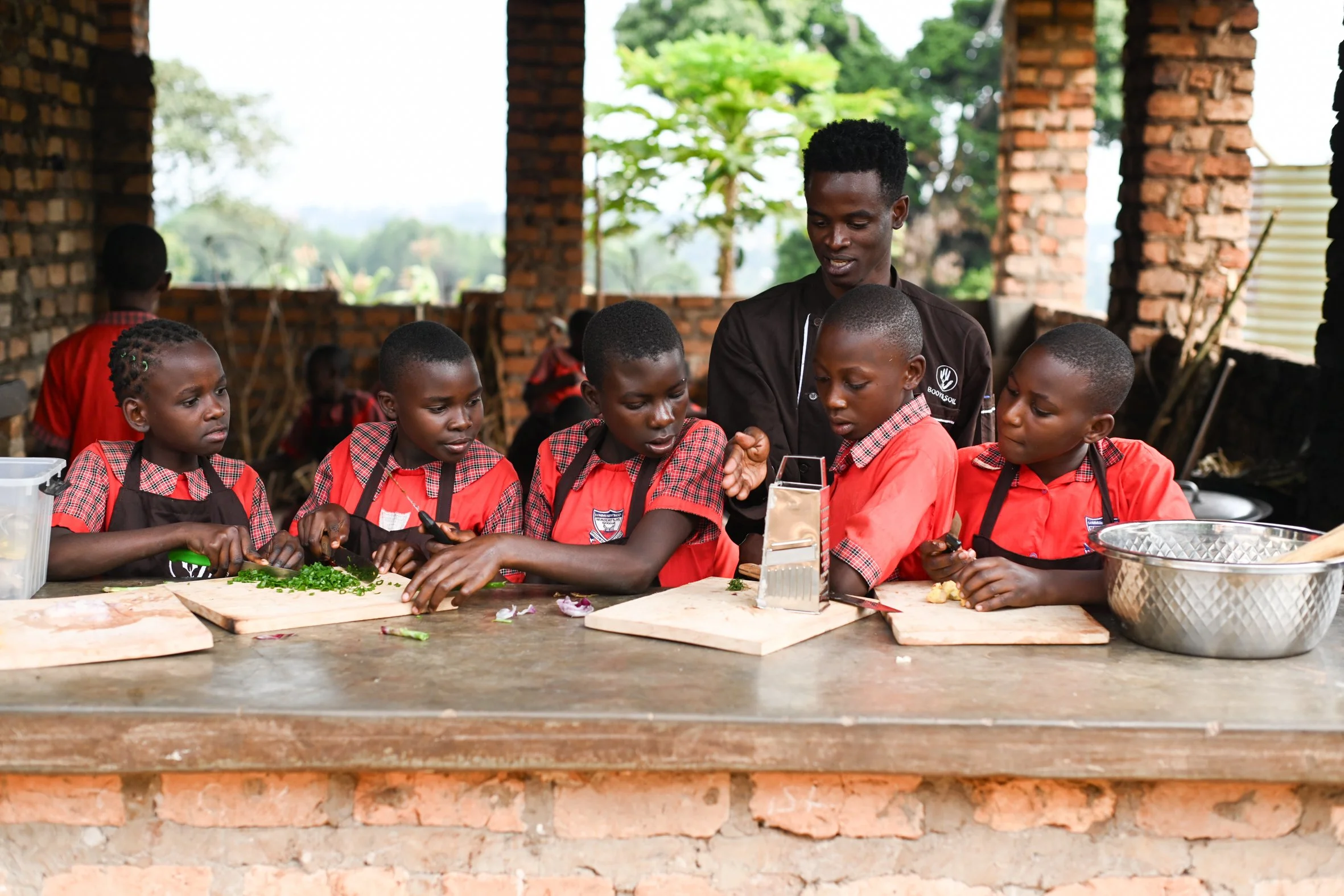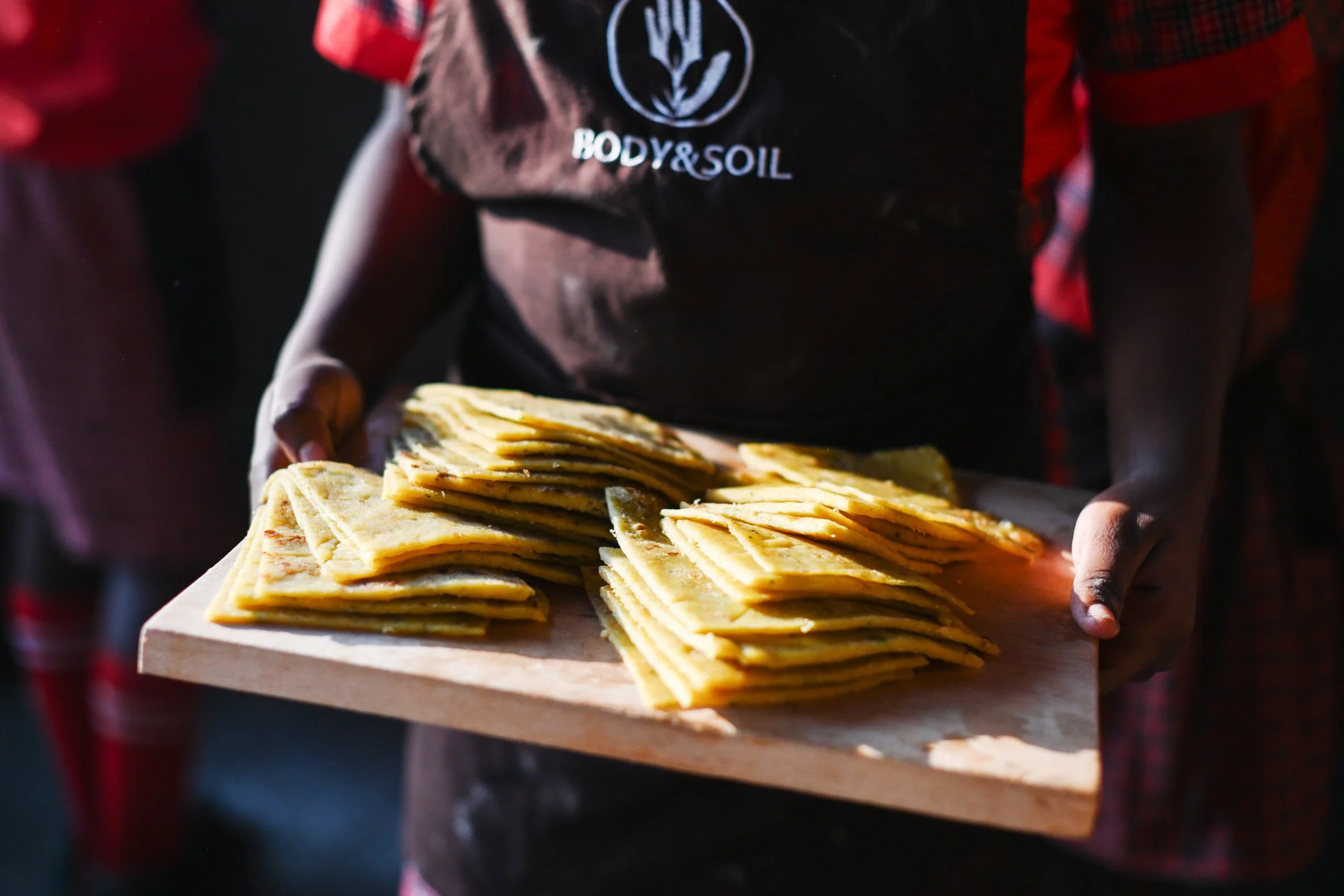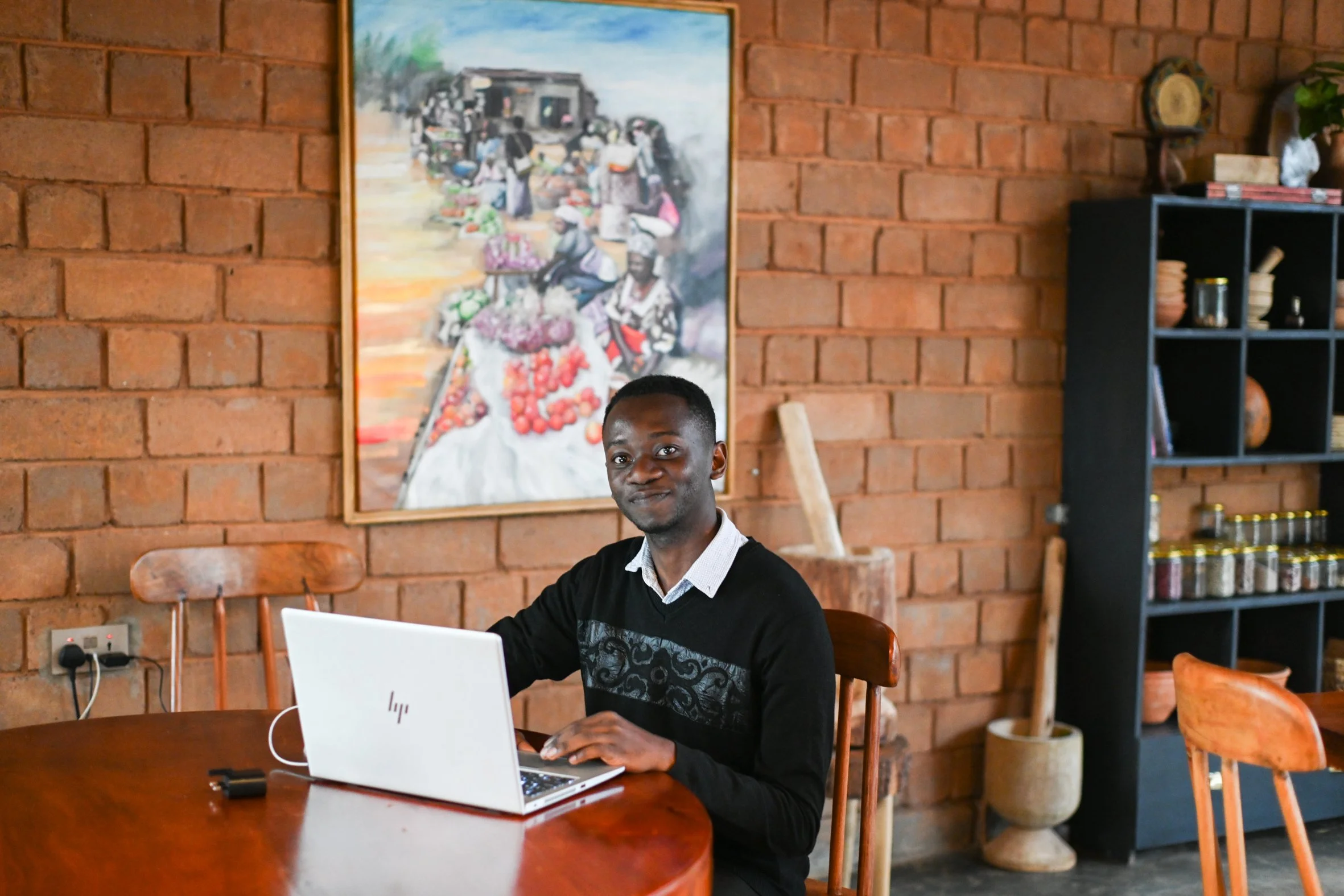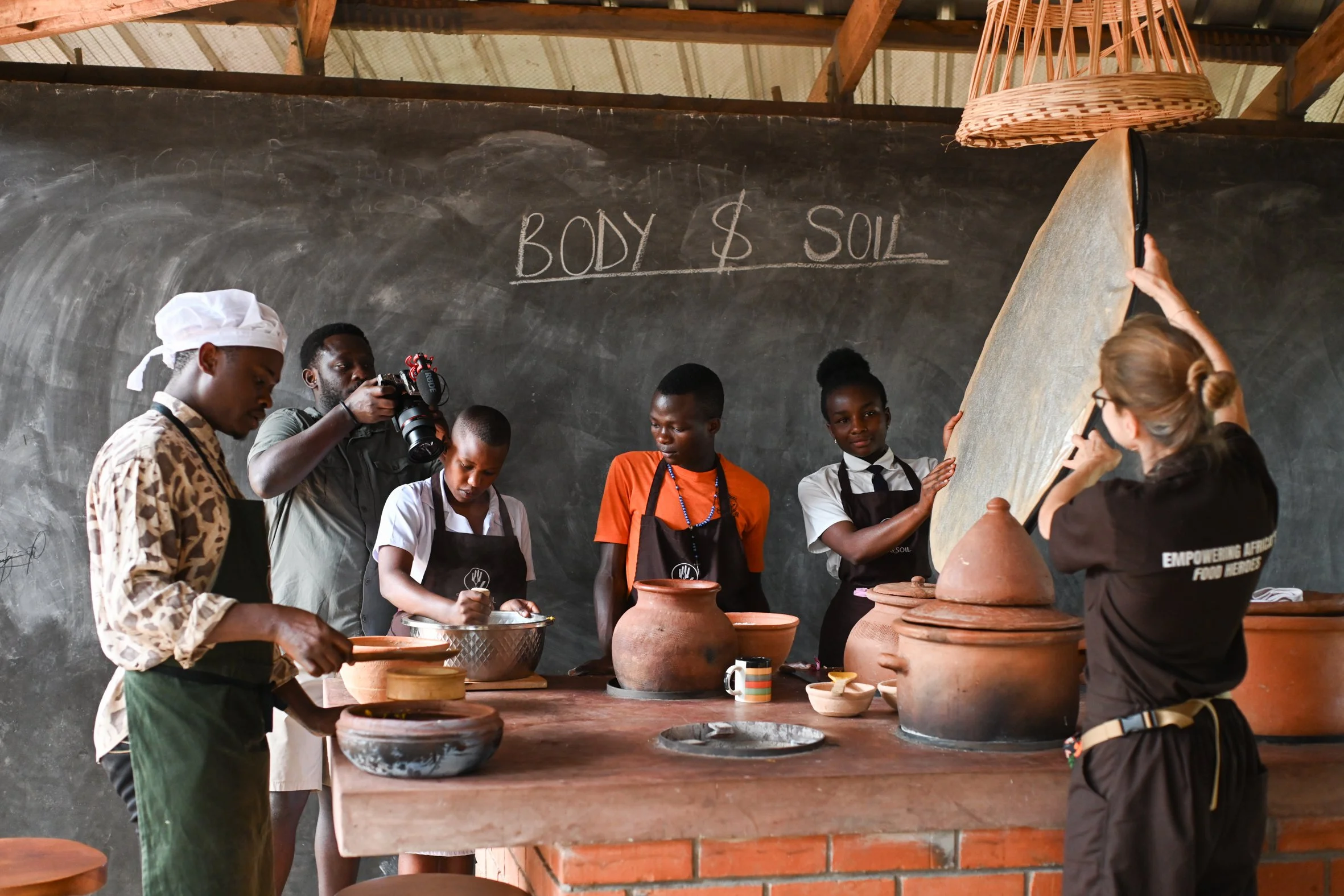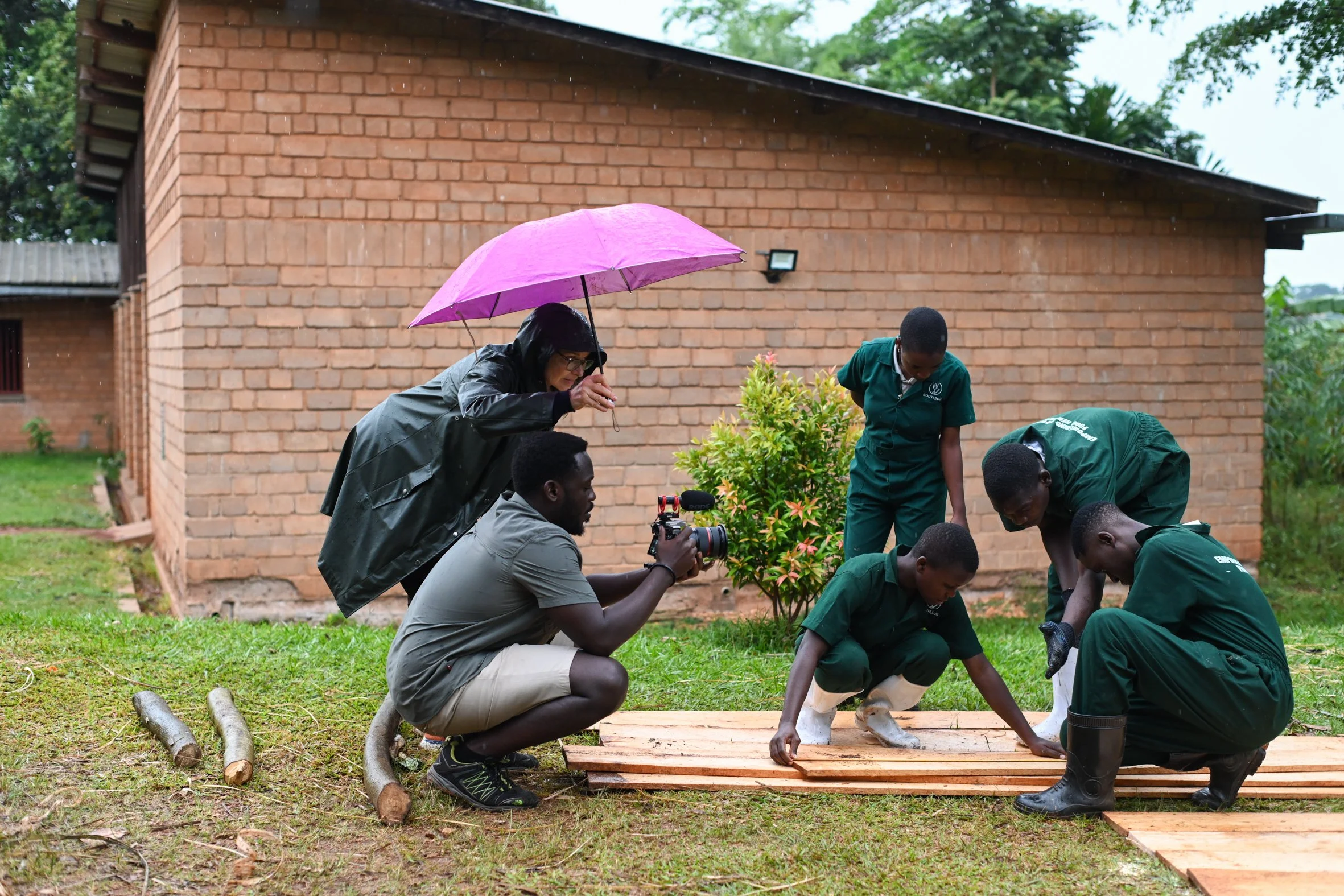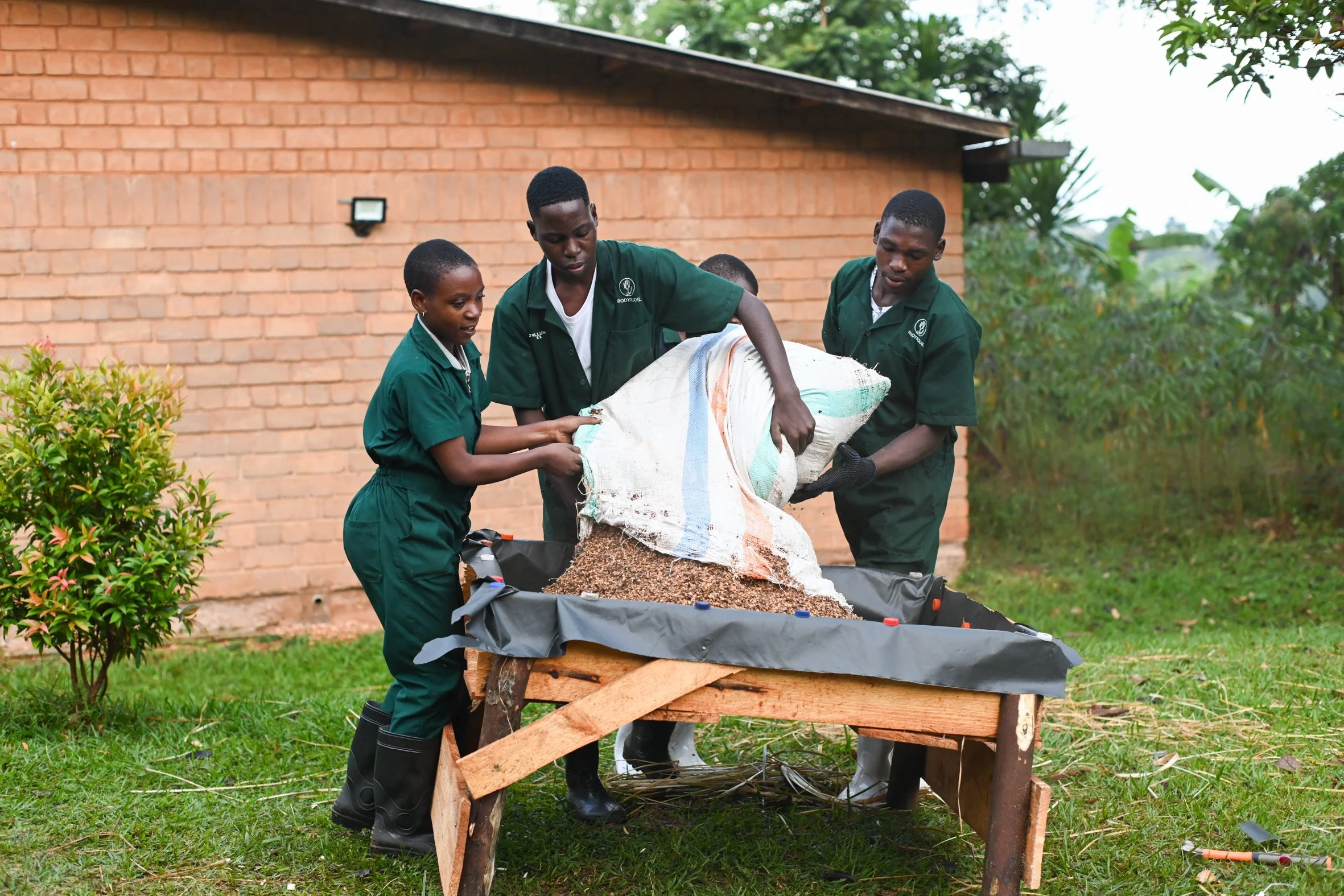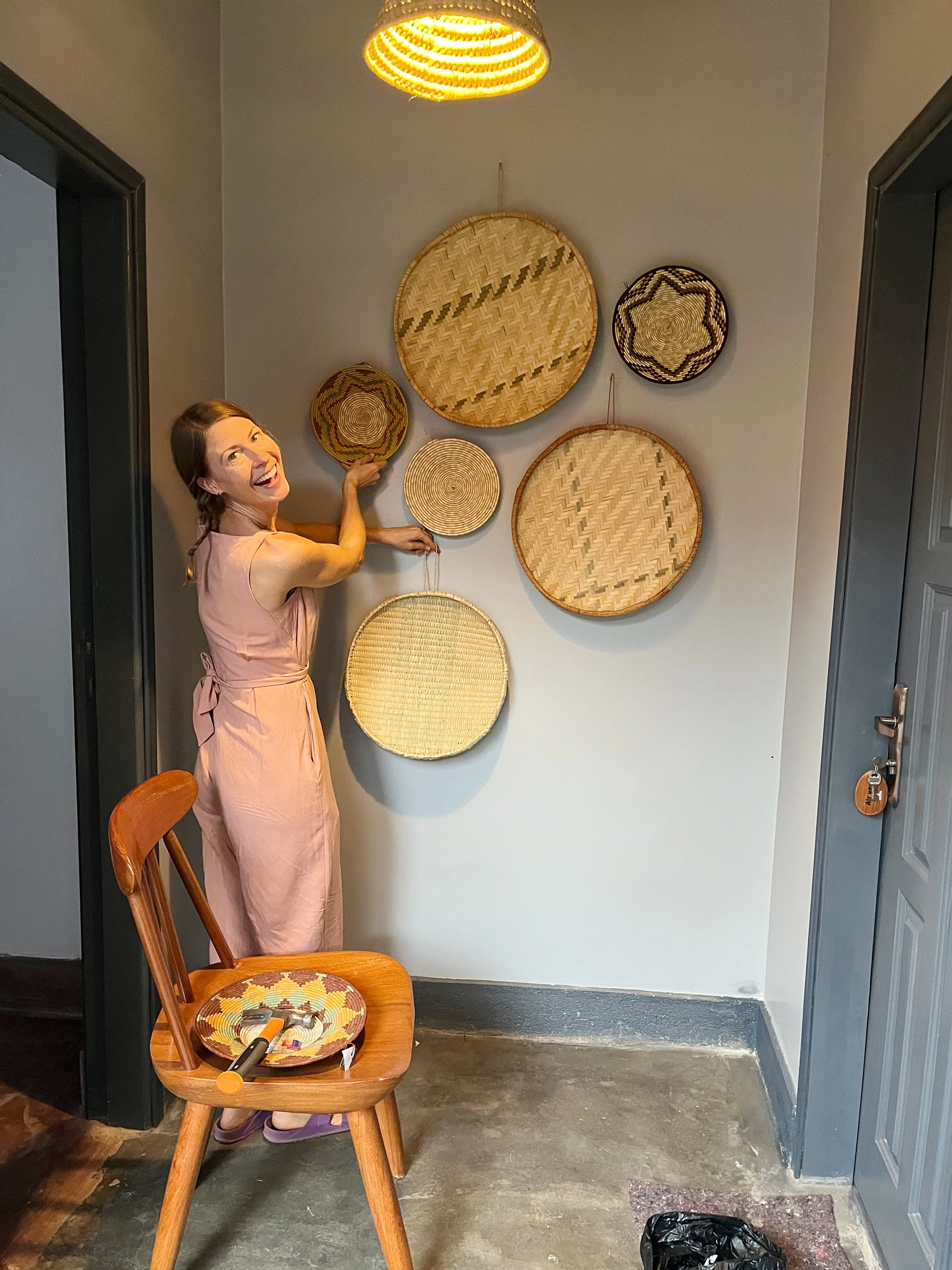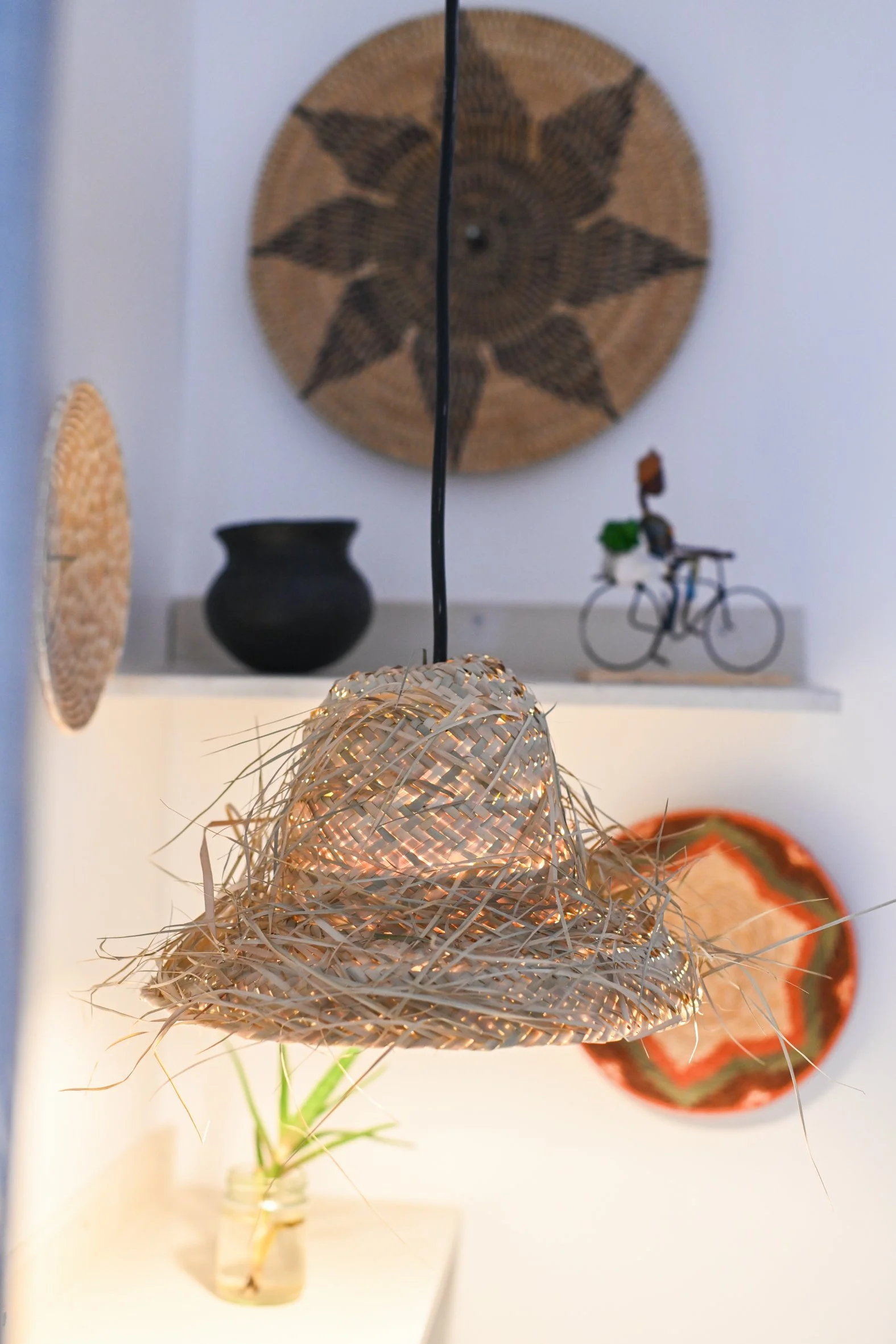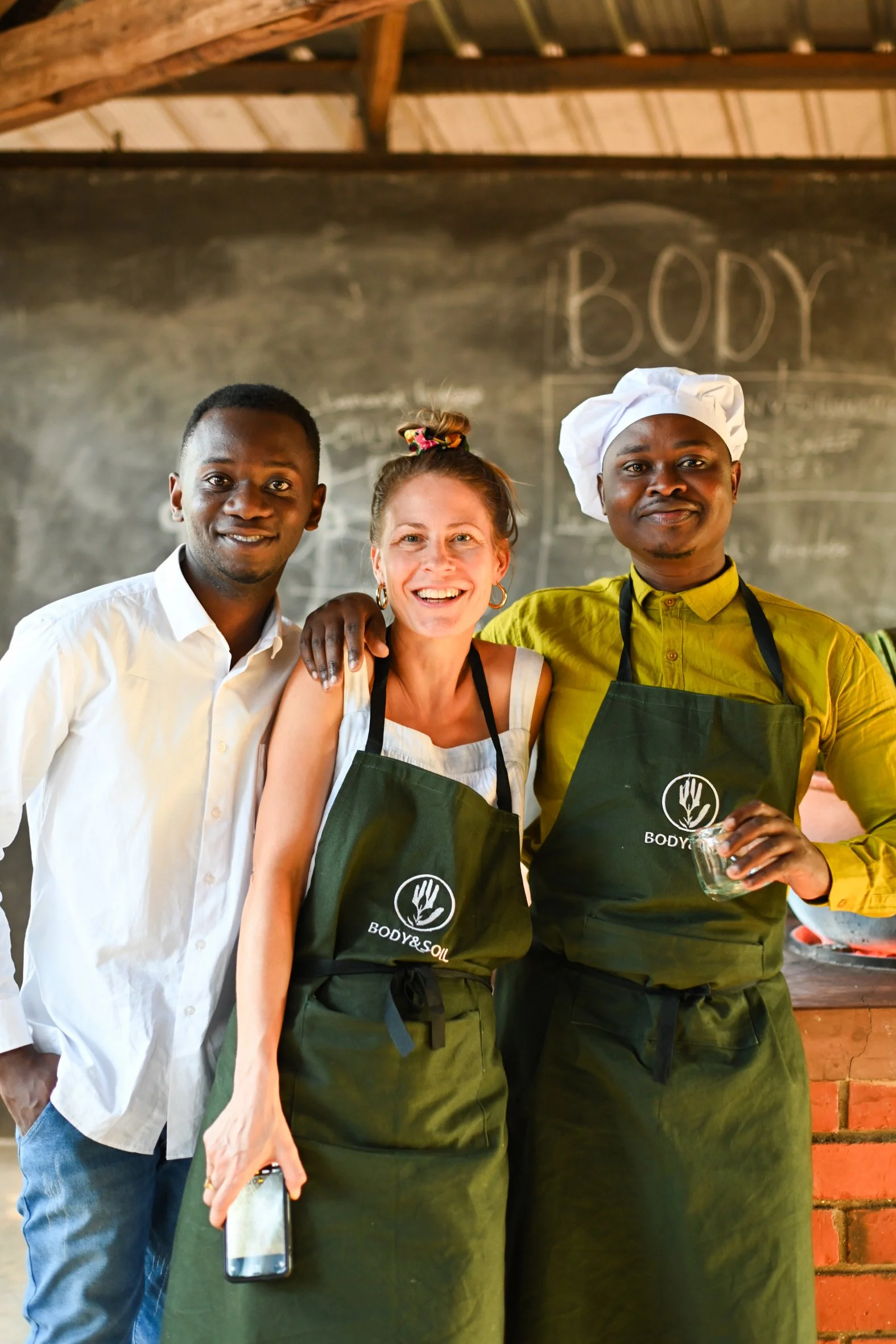“You bring food to life.”
You know how it is when you land in a new place and suddenly notice everything — the smells, the food, the different clothes, taxis, even the strange things in the supermarket? And then a few days in, you stop noticing. The new becomes normal.
A few weeks ago, my diligent plumber Kato sent me a work related voice message. At the end he added that he was following my WhatsApp status:
“Thank you for what you do to empower children. You make us appreciate our environment. You bring food to life.”
I was so touched I almost cried. And this is the magic of BODY&SOIL: just by inspiring people to notice and appreciate what’s already around them, the everyday “normal," we are empowering people.
Today I want to share a few stories of how this is happening.
I never set out to be a team leader — though, yes, I do have a “bossy” side to me (lol). But life trained me through tough places. I had to fight on my own, without a safe nest to fall back on. That’s why I can often step into situations and feel into things others might overlook. The key is always people’s hearts. When you meet others with respect and appreciation, you can move mountains.
from left to right: Stuart Nyanzi (B&S Project Manager), Eva Maria Schiffer (B&S CEO), Joseline Ninsiima (Trainer in Permaculture), Kalefu Wilbraod (Head Chef at B&S), Joshua Semaganda (Researcher and Photographer)
I’m not in the business of development but in the business of people. My team reminds me of this every day. I’m not calling all the shots — we decide together. When I’m out of line, they tell me. When they are, I tell them. That’s how we keep each other sharp, on the same eye level, each with our own expertise.
About Jennifer
Before I share some of our achievements, I want to tell you about Jennifer, our cleaning help. When she first came to us, I once found her sleeping on my bedroom floor. She was exhausted, raising four children (two from her late sister), and surviving only on posho every day — which she hates but ate because there was nothing else. She took any job just to feed them. At first, I wasn’t sure about this stranger sleeping on my floor. But I decided to give her a chance. I cleaned with her, trainded her, and together we polished floors and made the guest room beds. Slowly, she gained back her smile. She became cheerful, hardworking, and even put on some healthy weight. I also started teaching her about nutrition and sometimes sharing my food with her in the evenings.
When we launched a sewing workshop for community women, I asked if she’d like to join. On the first day, she came in skipping! At 7:00 a.m. she was already there, wanting to squeeze in some cleaning before the 9:00 workshop. Throughout the workshop she was always the first to arrive and the last to leave — often hours after dark. She even came on non-workshop days to practice. She said: “I want to show myself I can do this. You are investing in me; I can’t disappoint you.”
And here’s the thing: none of the women are being paid, except the trainer. Yet the focus and dedication I’ve seen in these five women is stronger than almost anywhere else I’ve been. It shows they really want this. Even the trainer was surprised.
The goal of the workshop is to create shopping bags out of second-hand materials and sell them locally and in the cities. Next week, we’ll be screen-printing our first bags with the words “No kaveela” (“no plastic bag”), to encourage less waste. If it works, the income we can use to help build more school clubs and support the women. Jennifer’s personal goal? “I want to be a trainer.” And I believe she will be. Watching her bloom is, for me, the definition of empowerment and has been one of my personal highlights of the past few weeks.
Making Magic
Another highlight was cooking with women from the community. It was magic — the RUCID students and community women learned from each other, and even our chefs Bonny and Kalefu were inspired. While the pots simmered, the students showed the women how we organically grow and process food at the college, and I added short nutrition lessons they could take home.
Preparing Luwombo with G-nuts, tubers, and vegtables.
From RUCID staff, I learned that people used to be reluctant to come to the college — it felt too “official,” not for them. Opening our doors through cooking sessions is changing that, little by little.There’s a quote I recently live by:
“If you chase butterflies, they will fly away. But if you focus on creating a beautiful garden, the butterflies will come. Don’t chase — attract.” And the butterflies are coming, literally and figuratively.
For example, a woman who cooks outside RUCID selling to school kids asked why the others were coming. Then she approached Kalefu, our head chef, and asked if she could also join. She wants to learn how to cook better. A woman selling food on the street is a key person. Imagine she starts to sell healthier foods to school kids — then we’re already one step further.
Ugandan Fufu (made with fermented Matoke and Cassava), with local kale, and okra sauce.
Concrete Achievements of the Last Six Weeks
1. Demo garden
At RUCID, with the help of local external expert Joseline Ninsiima, we began planting our B&S demo gardens. We’re mixing syntropic and permaculture practices, using seeds from our seed bank — collected from agroecological farmers and school children. The rains were late, but we prepared, and now, as I write, we’re planting.
Each bed is sketched with a map, and we’re developing garden journals for ourselves and the schools. The goal is to lay a foundation that shows what’s possible and for everyone to copy. And you know how passionate I am about herbal gardens: our test garden is flourishing. Recently one of the RUCID students fell ill with malaria, and instead of running to the doctor, Chef Kalefu treated her with a mixture of herbs from our garden. She was healed in just one day. This used to be common knowledge, and we can bring it back.
Above: Our Permacultur Demo Fields, at the RUCID Organic Agricultural College in Mityana
2. Children coming on their own
One Monday morning, RUCID Director Samuel Nyanzi knocked on my door, glowing with excitement. The day before, his students from the processing club had spent the whole Sunday at RUCID learning how to process foods — all on their own initiative. “It was amazing,” he said, his face lighting up. Other children also come — to bring or to pick up seeds, bake, or cook with Bonny and Kalefu.
Samuel Nyanzi, RUCID director with his Processing Club at the Primary School
We also found ways to motivate the garden club by dividing the kids into groups. Each group is responsible for its own permaculture bed and can decide what to grow after consulting with Elisha Ssebadduka, the club leader. At the end of the term, the best bed wins a small prize. This gives the kids a sense of ownership and more responsibility, and it seems to be working!
Above: The B&S Agricultural Club at the secondary school, creating permaculture beds.
3. Recipes for the community cookbook
Here, people usually cook by feeling, not by measurements. That’s why creating the BODY&SOIL community cookbook is so important — it allows people and schools to replicate healthier recipes. Finally I've begun posting these recipes on our blog!
Together with B&S Chefs Bonny Kalungi and Kalefu Wilbroad, we think about recipes for:
schools (to replace posho (maize poridge) and beans)
women at home
communities on special occasions
and even restaurant chefs
The idea isn’t to take away, but to add, or create spin-offs like our popular pumpkin chapati. You can find the first recipes here: https://www.bodyandsoil.africa/blog
I envision the B&S community cookbook being used locally, but also published internationally so you can get your hands on it too. :)
Above: Recipes for our B&S Communtiy Cookbook we are developing
4. Soaking beans
During one of our RUCID cooking sessions, I taught about soaking beans. No one knew beans contain anti-nutrients that block mineral absorption. Nor did they know that the color of beans signals nutritional content — darker beans are rich in antioxidants, yet some villages avoid certain colors out of superstition.
We’ve asked students, when they are on leave during the holidays, to bring beans from their villages so we can test-cook them and add them to our seed bank. The best part? Since that class, the RUCID cook has been soaking beans the day before, not because I told him to, but because the students are insisting on it.
Huge success!
5. Seed bank and plant documentation
We made a big step forward here. Two of the B&S team — photographer Joshua and biologist Francis — started documenting plants and seeds to build the first version of our on- and offline databank.
Joshua takes the photos and dries the plants for a herbarium, while Francis types up the information into our drive. In fact, everything we do is now being collected.We’re still testing templates to see what works best for the team. Data collection is key for future scalability!
Kluivert Francis, in charge of our local seedbank and data collection.
6. First YouTube shoot
I’m a born storyteller, so turning our work into educational films for children and youth I love doing. Weeks before cameraman Eric Mukalazi arrived from Kampala, we planned everything with our three clubs: who would demonstrate what, schedules, recipes. I directed, Eric filmed, Stuart coordinated, Bonny and Kalefu cooked with the kids in front of the camera. We filmed for four days straight — even through the rain. Every educational film is presented authentically by the children themselves.
These first films will set the BODY&SOIL tone for our YouTube channel. Over the coming months, we’ll gather feedback. I can’t wait to share them with you soon.
You can already follow us here: BODY&SOIL
Above: A glimpse of our filming week: in the B&S classroom filming recipes, the Agriculture Club demonstrating how to make vermicompost in the rain, and the Processing Club building a dryer.
7. Our rooms
Back in January, I began renovating a complex at RUCID to host our experts and partners. But soon, we’ll also open our doors to curious travelers who want to experience our world — from soil to plate. You can cook with us, plant with us, join school clubs, and then enjoy a delicious meal prepared by Chef Kalefu (and no, it won’t be the standard tourist dishes 😉).
This is the first time in my life I’ve ever renovated a space: breaking and building new walls, installing bathrooms with proper showers and toilets. And by the way, I’ve never seen a courtyard made with bricks in Uganda before (I don’t think anyone has here 😅).
I broke a few “rules” in the renovation, using local materials creatively to inspire others of what you can do, while keeping costs low. Lamps made from straw hats, banana-fiber carpets, carpentered furniture. Except for sanitary fittings, everything was sourced locally.
For me, these rooms are more than accommodation. They’re part of my vision for a place of holistic healing — where the wind in the trees, laughter with the team and students, digging in the soil, and nourishing food all come together. And it’s already better than I imagined.
Above: Impressions of our freshly renovated guest rooms each with a private bathroom. We also welcomed our first guest and my B&S business partner, Marion Bierling. She’s sitting in our beautiful courtyard, with a calabash tree as the centerpiece.
Like you, I get bombarded daily with negative world news. But I want you to know: good things are happening too.
Of course, we have challenges — electricity has been gone for over two weeks as I write this, we have to invest in solar, and we need support to build scalable structures that will help us become self-sufficient. But today, I wanted to dwell on the magic moments of the last weeks! If you want to be part of this journey to holistic health, you can. Contributions, whether monthly or one-time (tax-deductable), go further here than you might imagine.
I’m super thankful for everyone who takes the time to read this journal, and maybe even share what we’re doing with others around your dinner table:) Who knows — maybe you’ll be one of our guests here soon!
With love from Uganda, Maria and the team!

